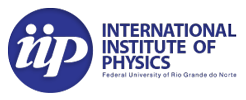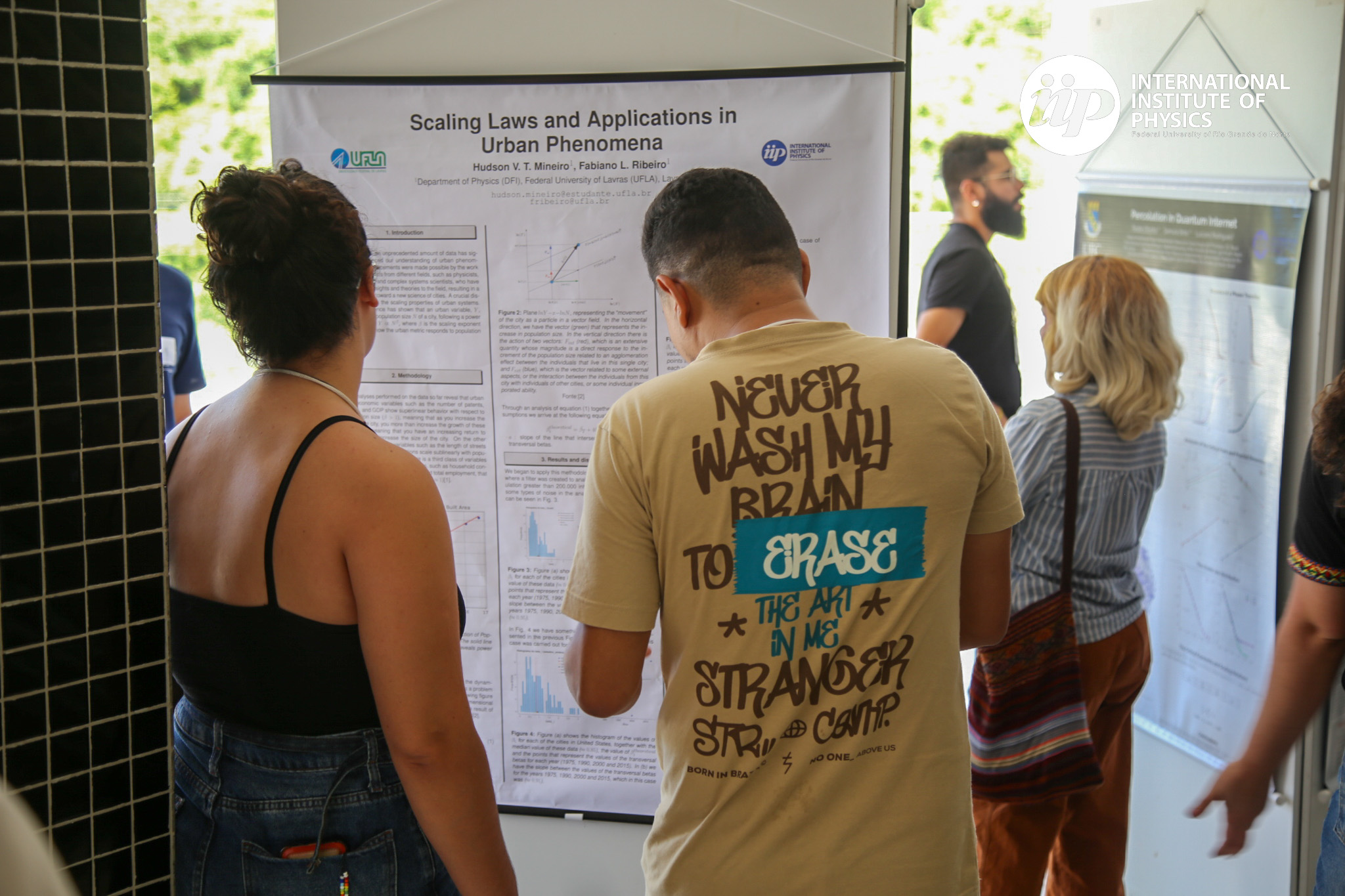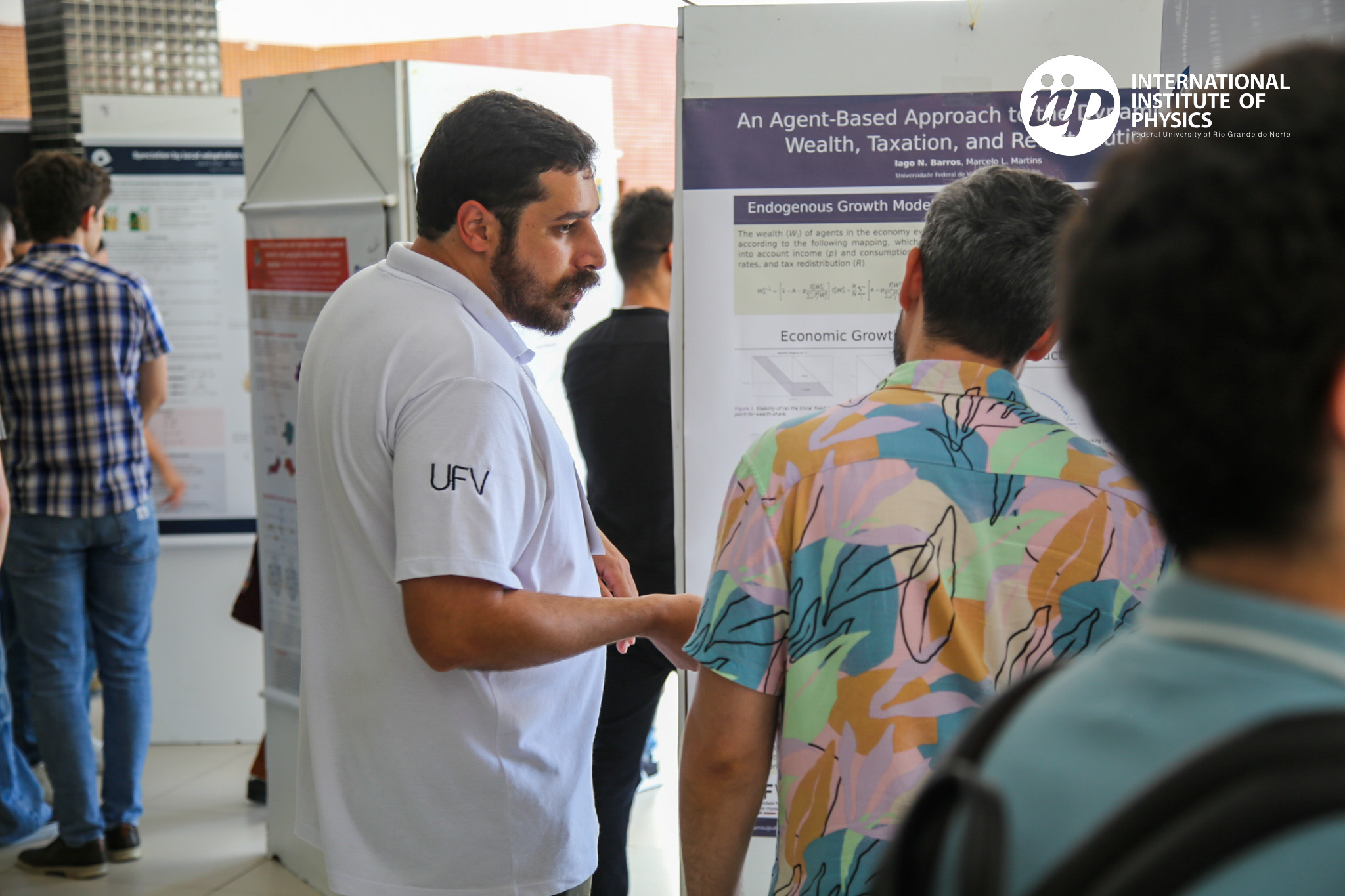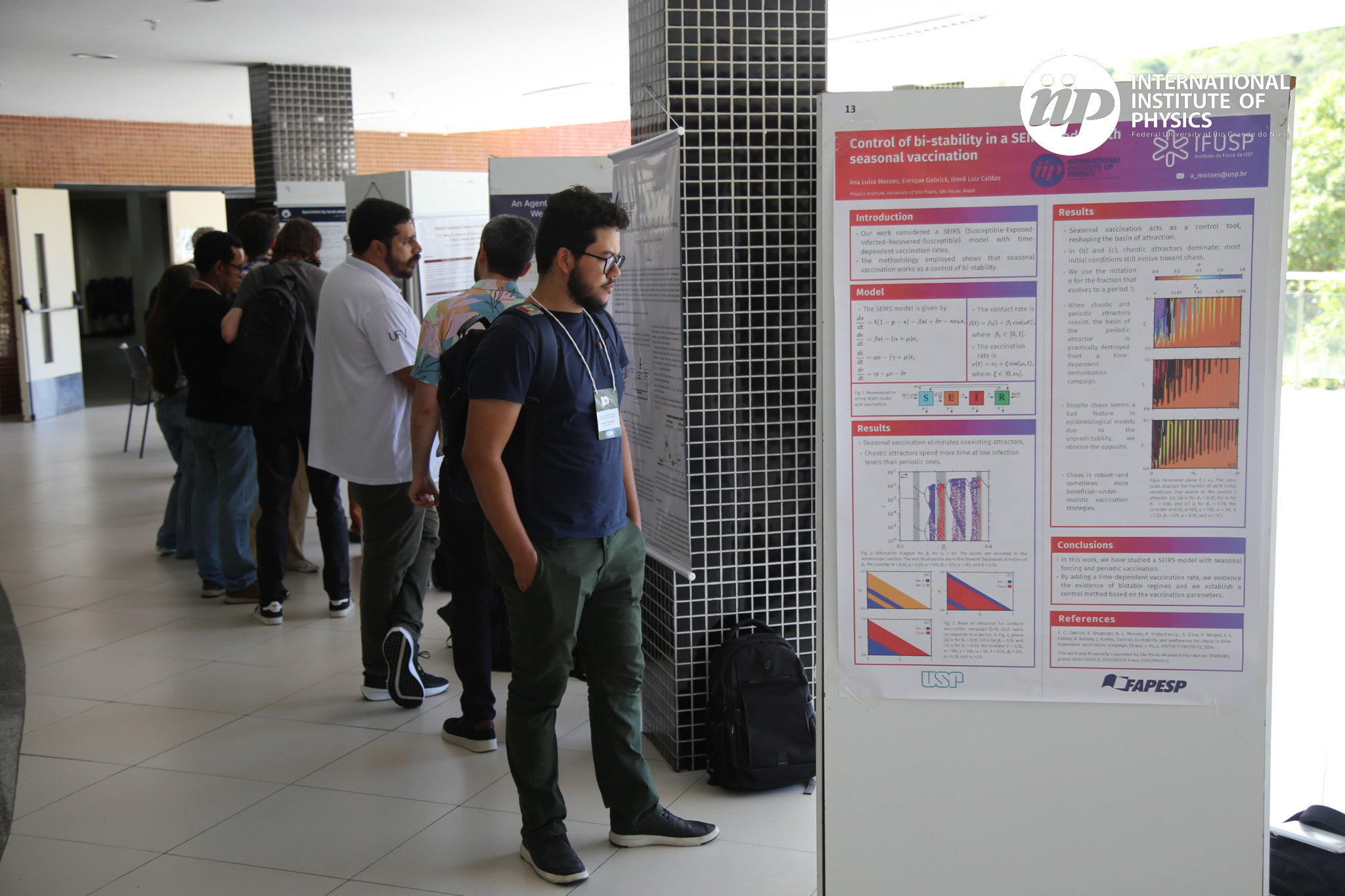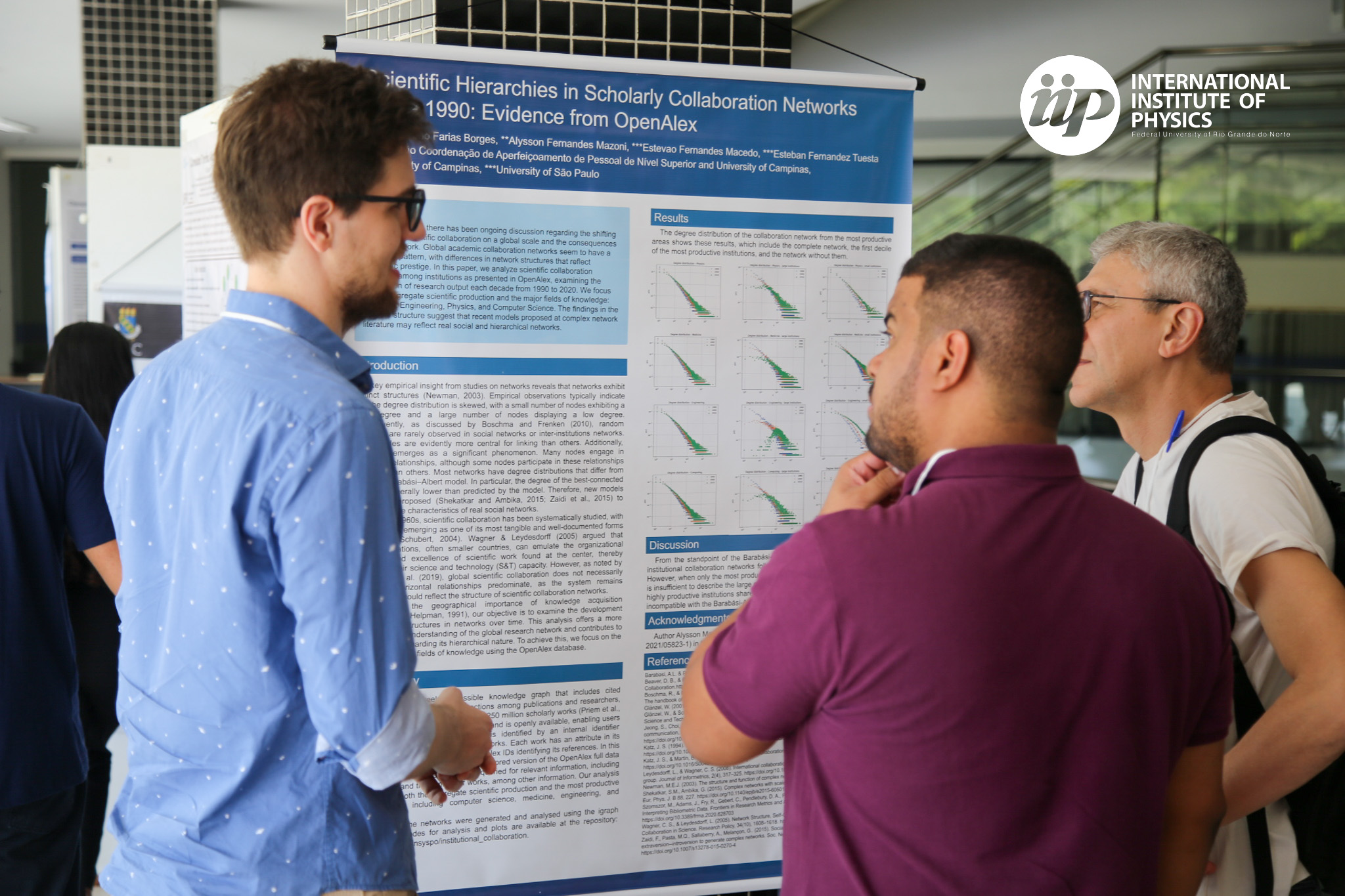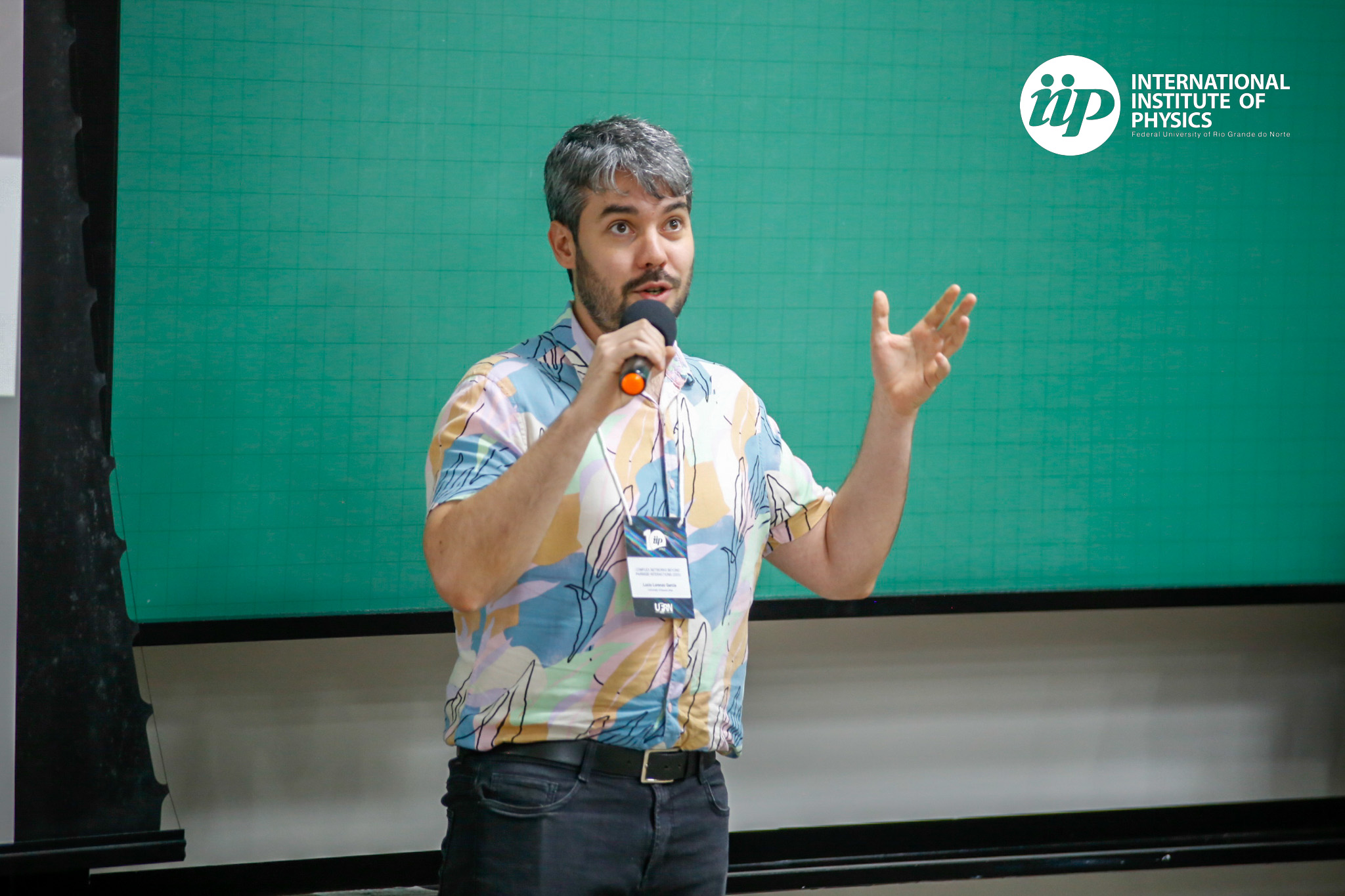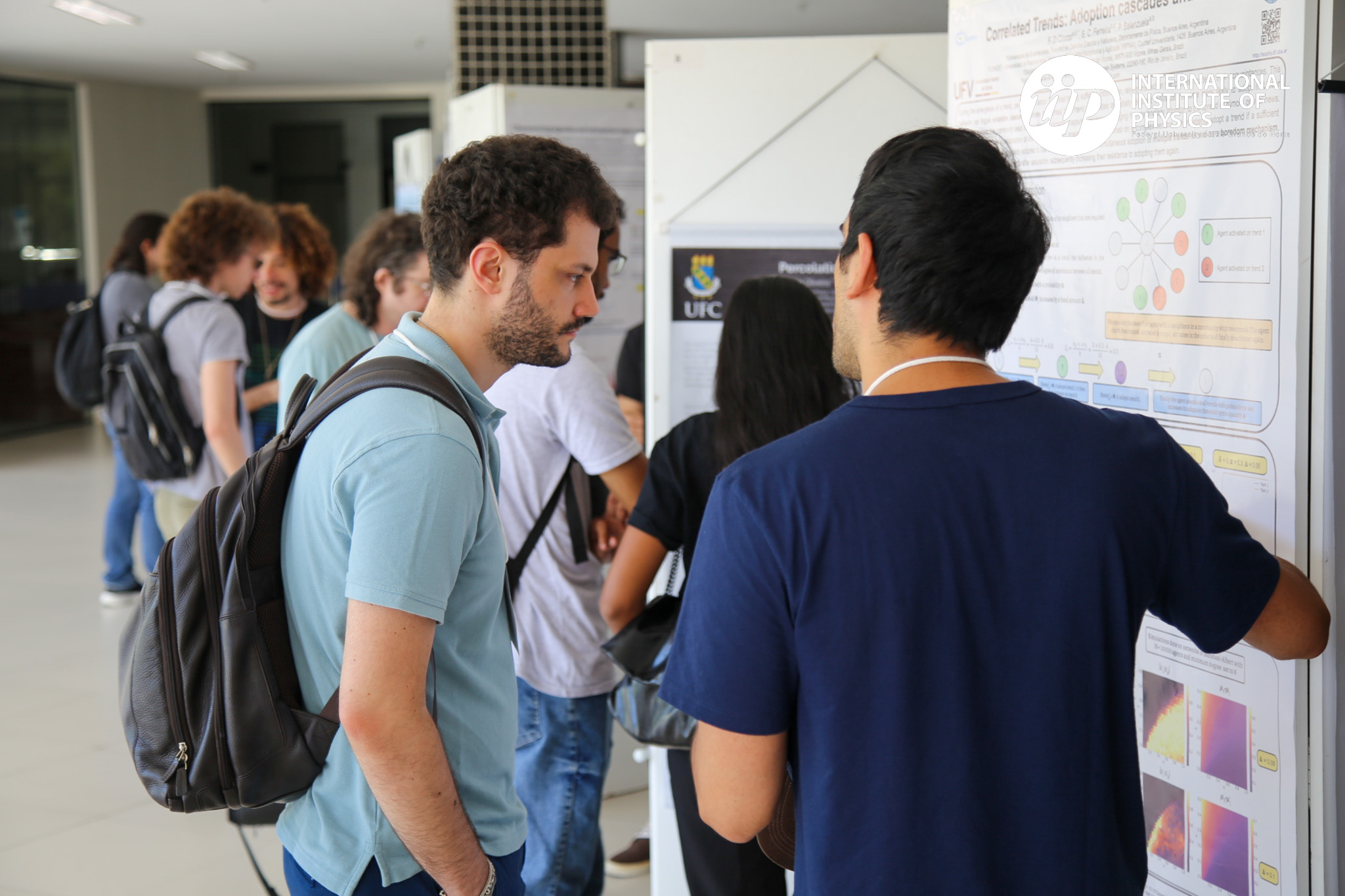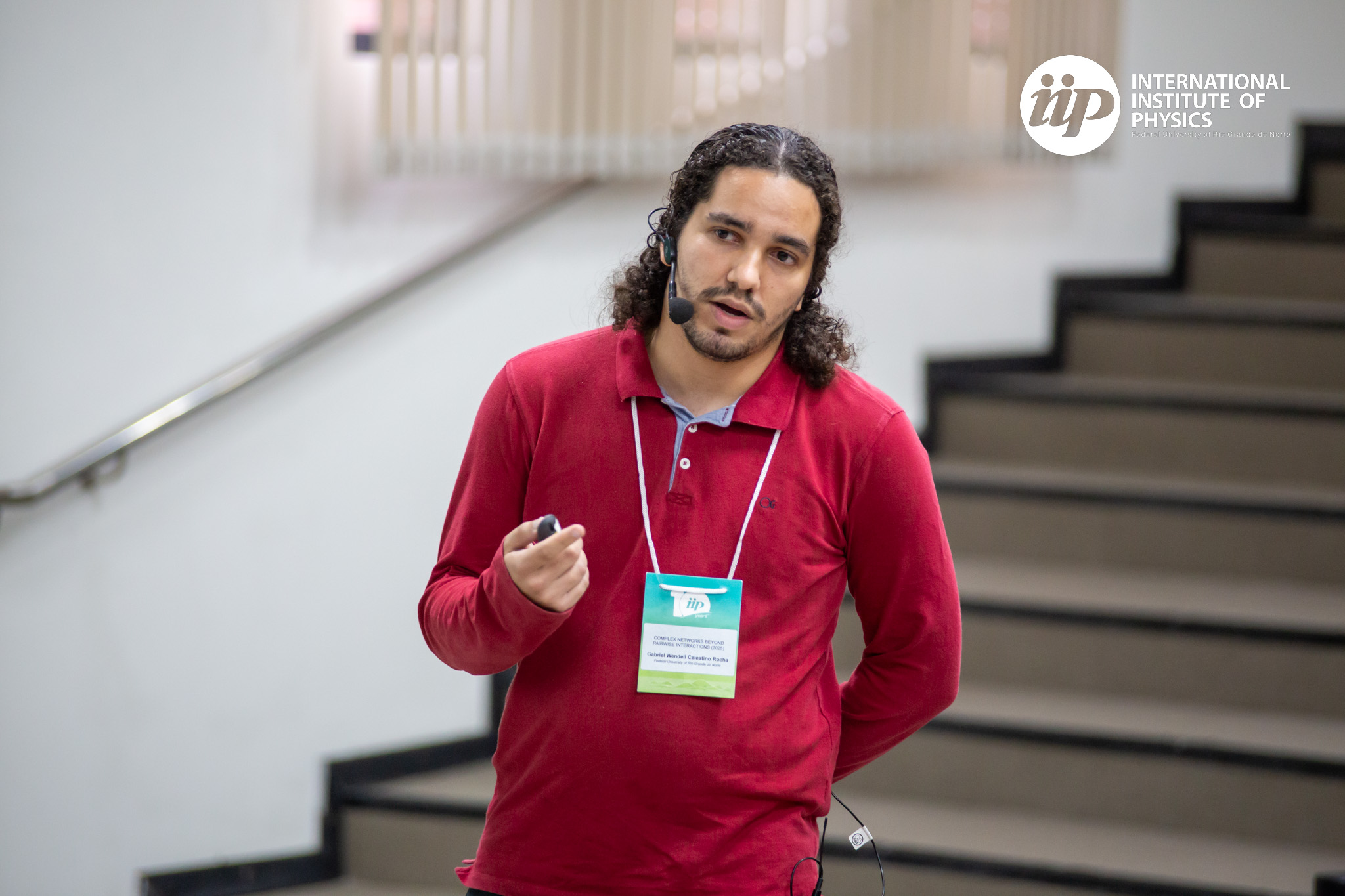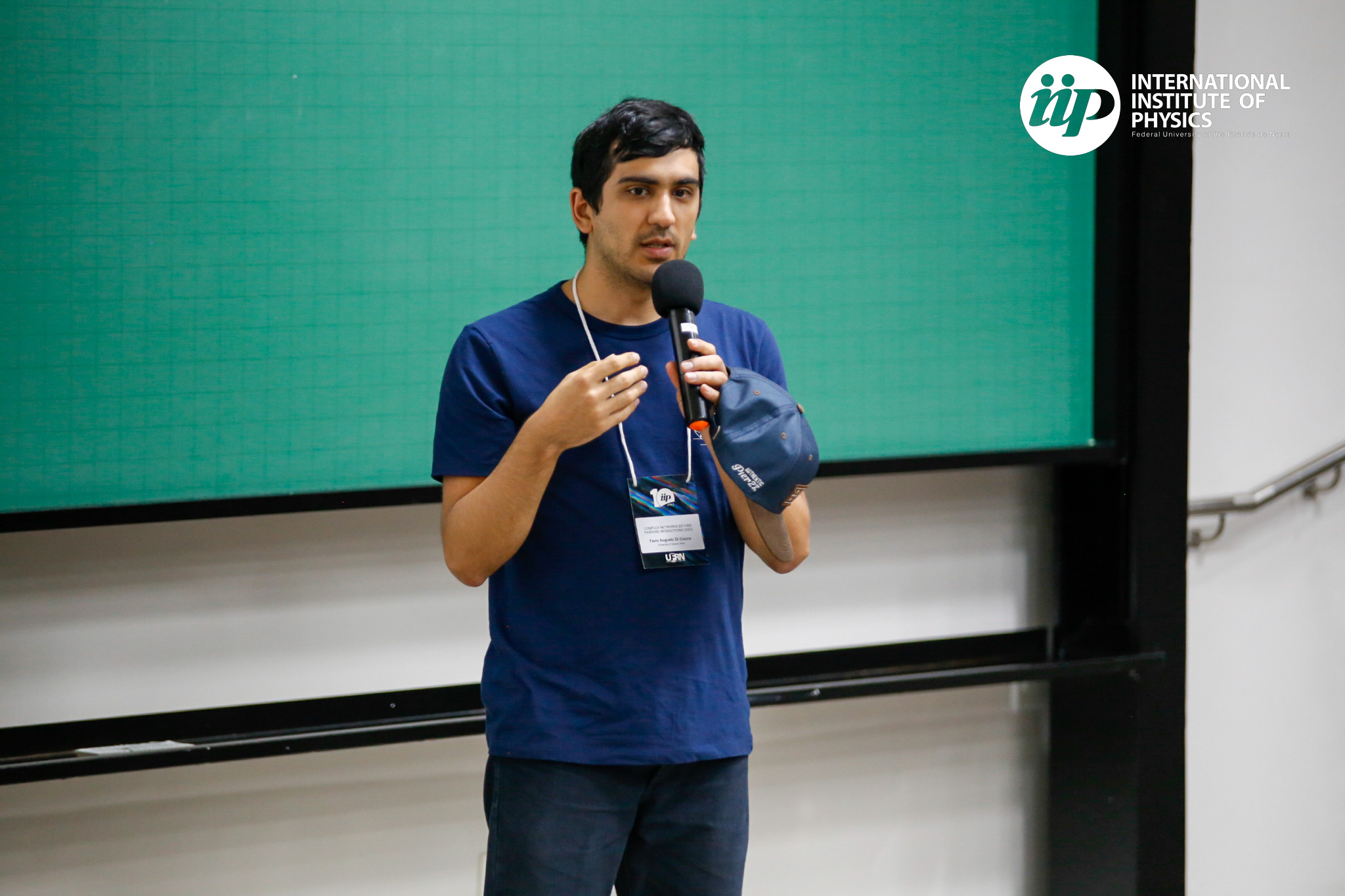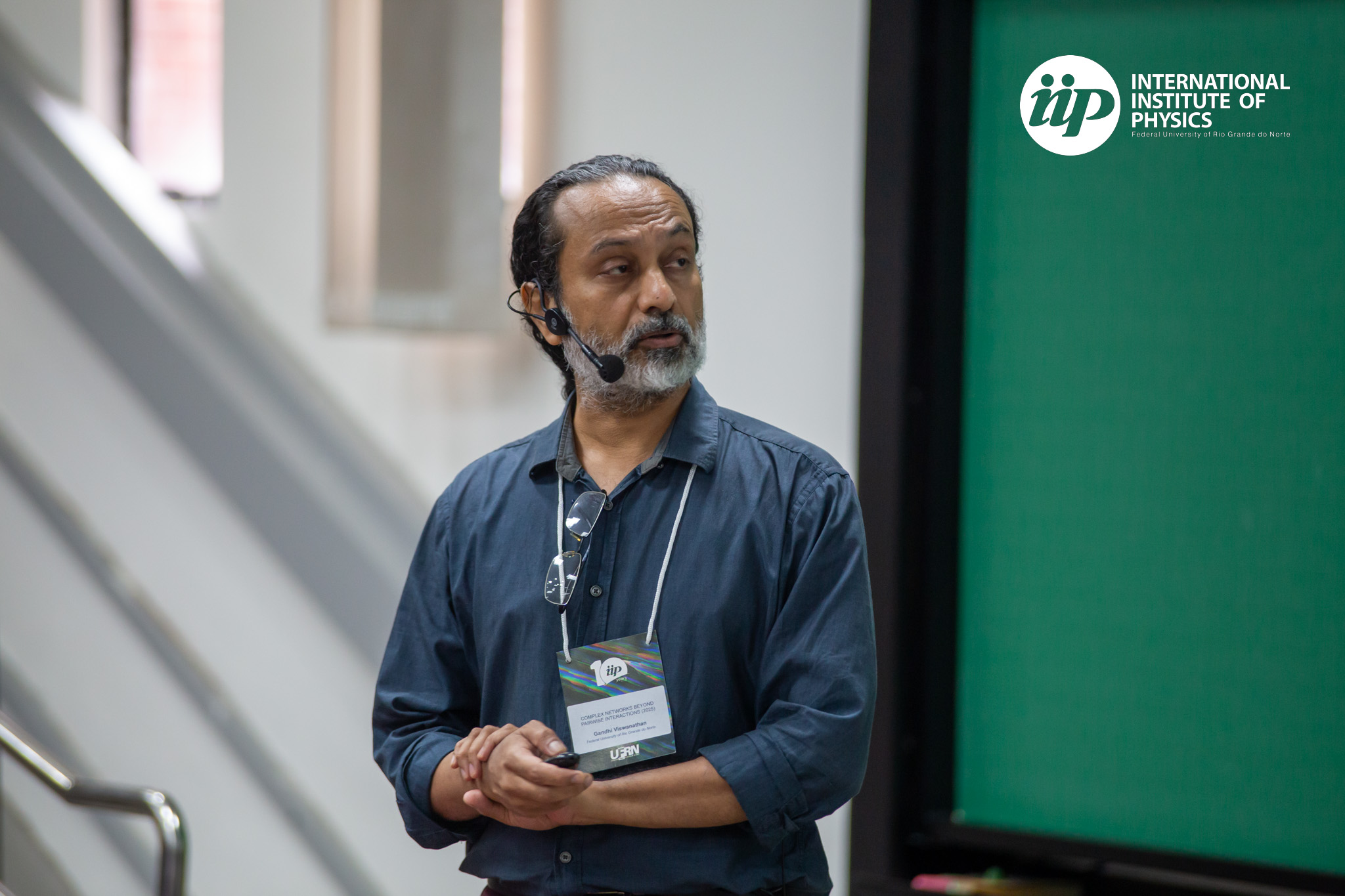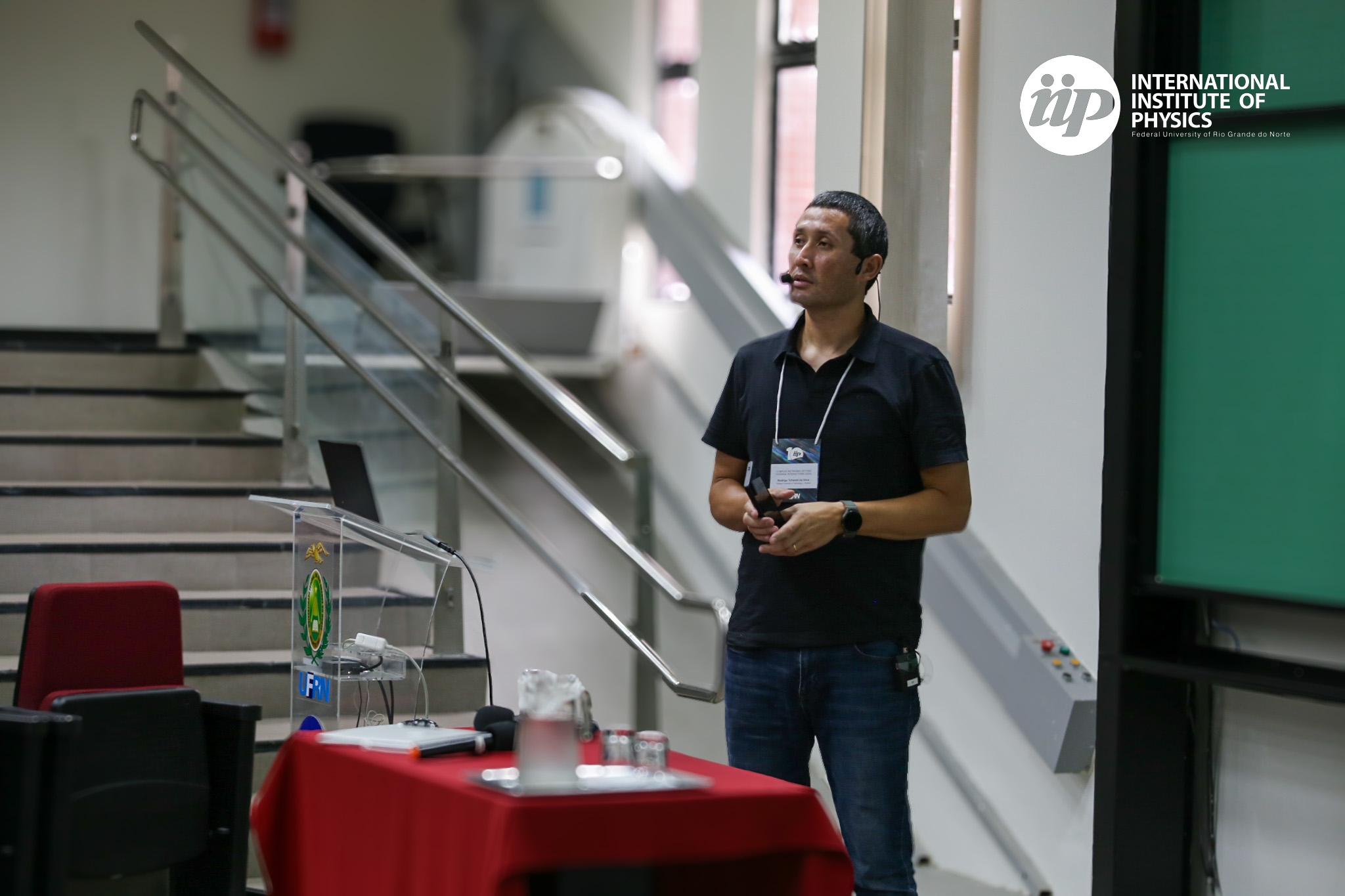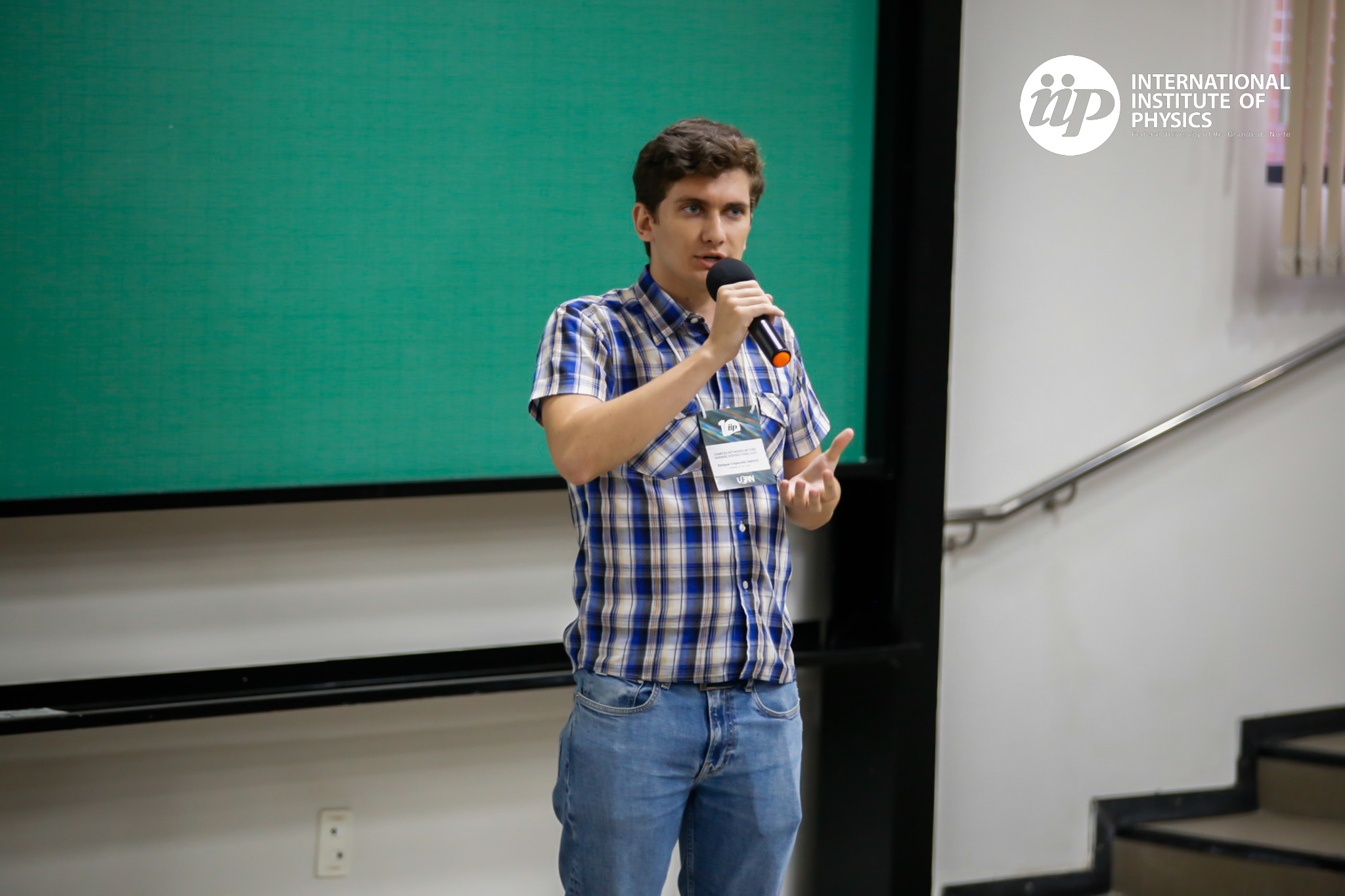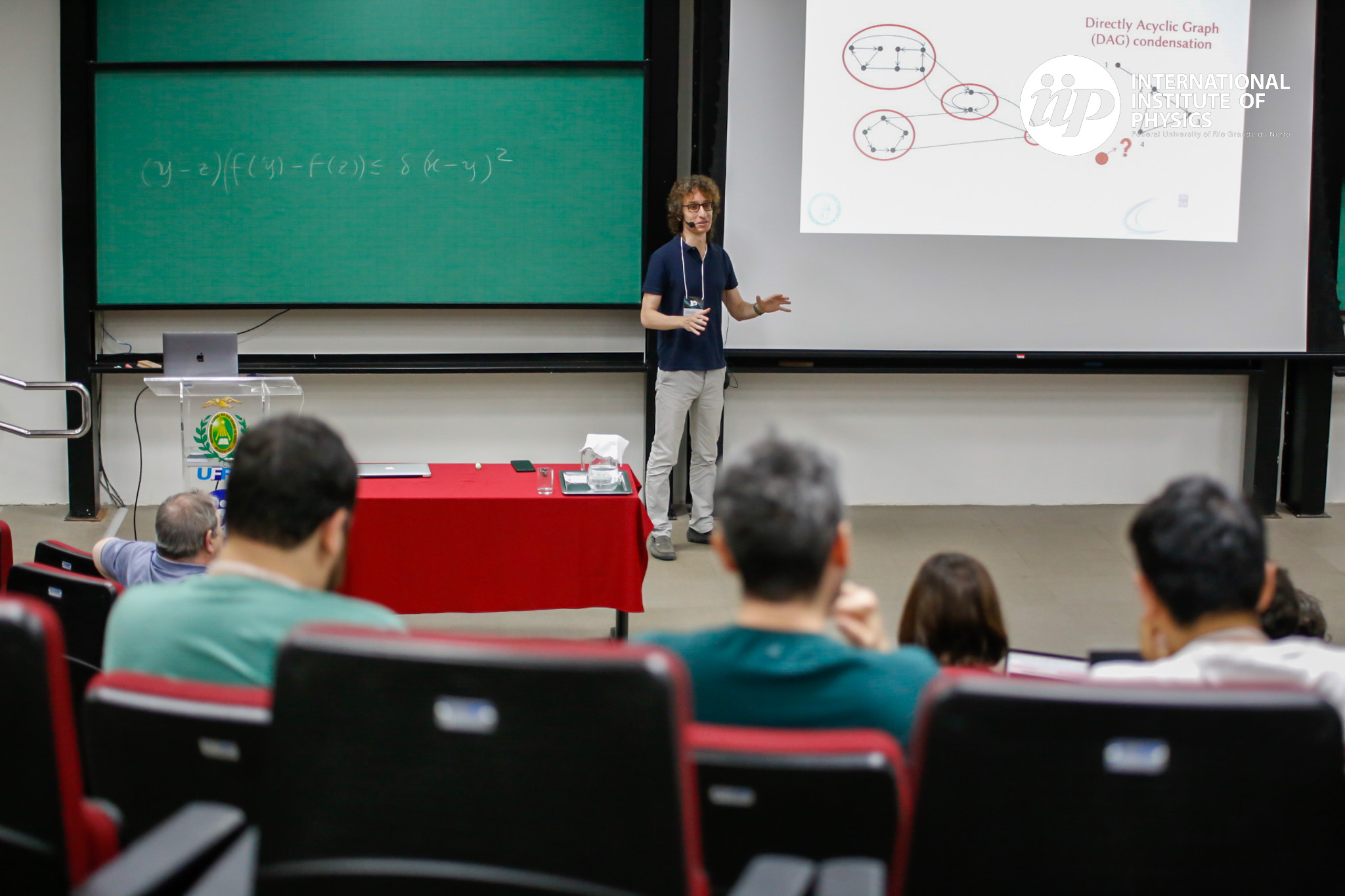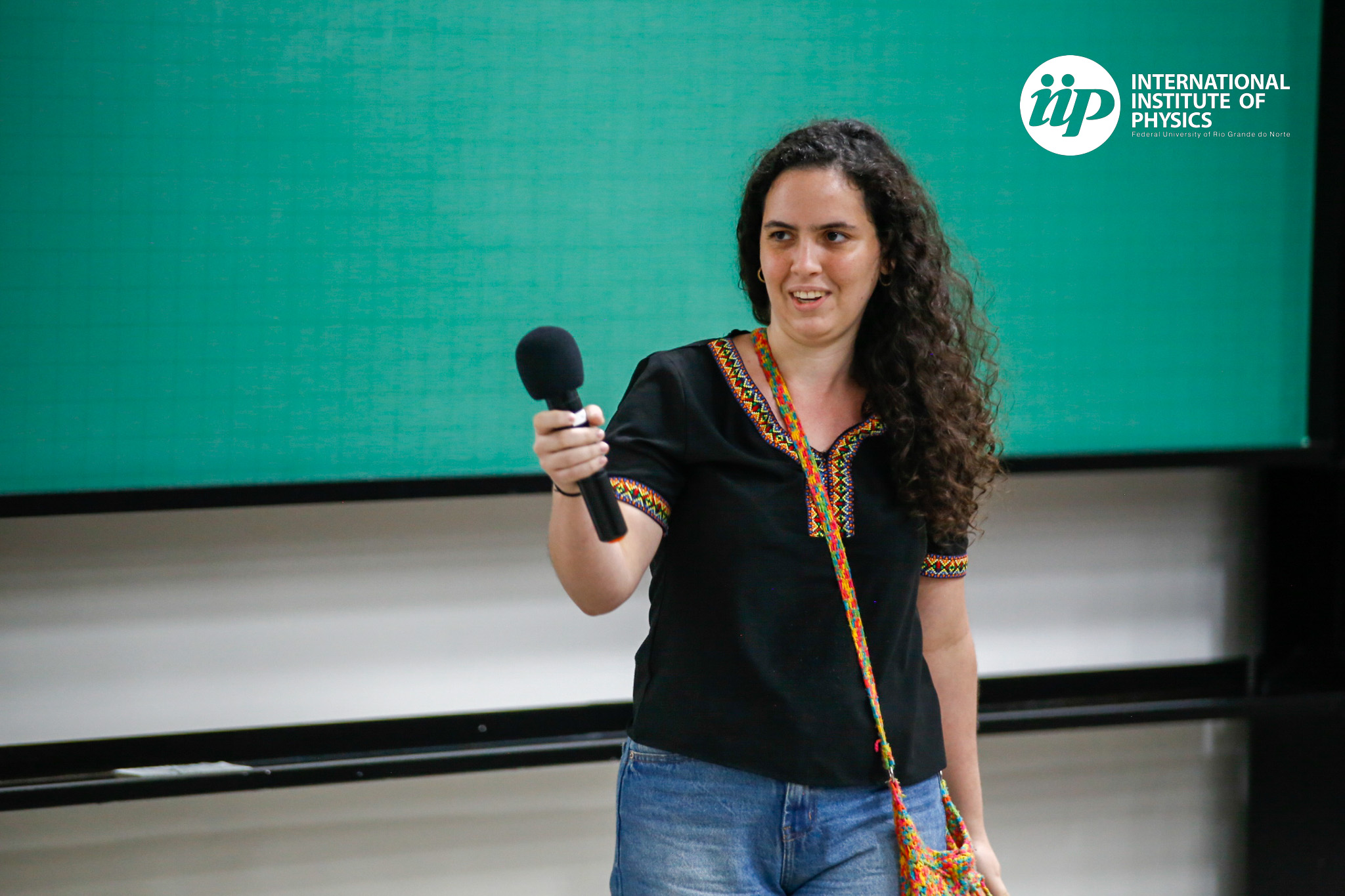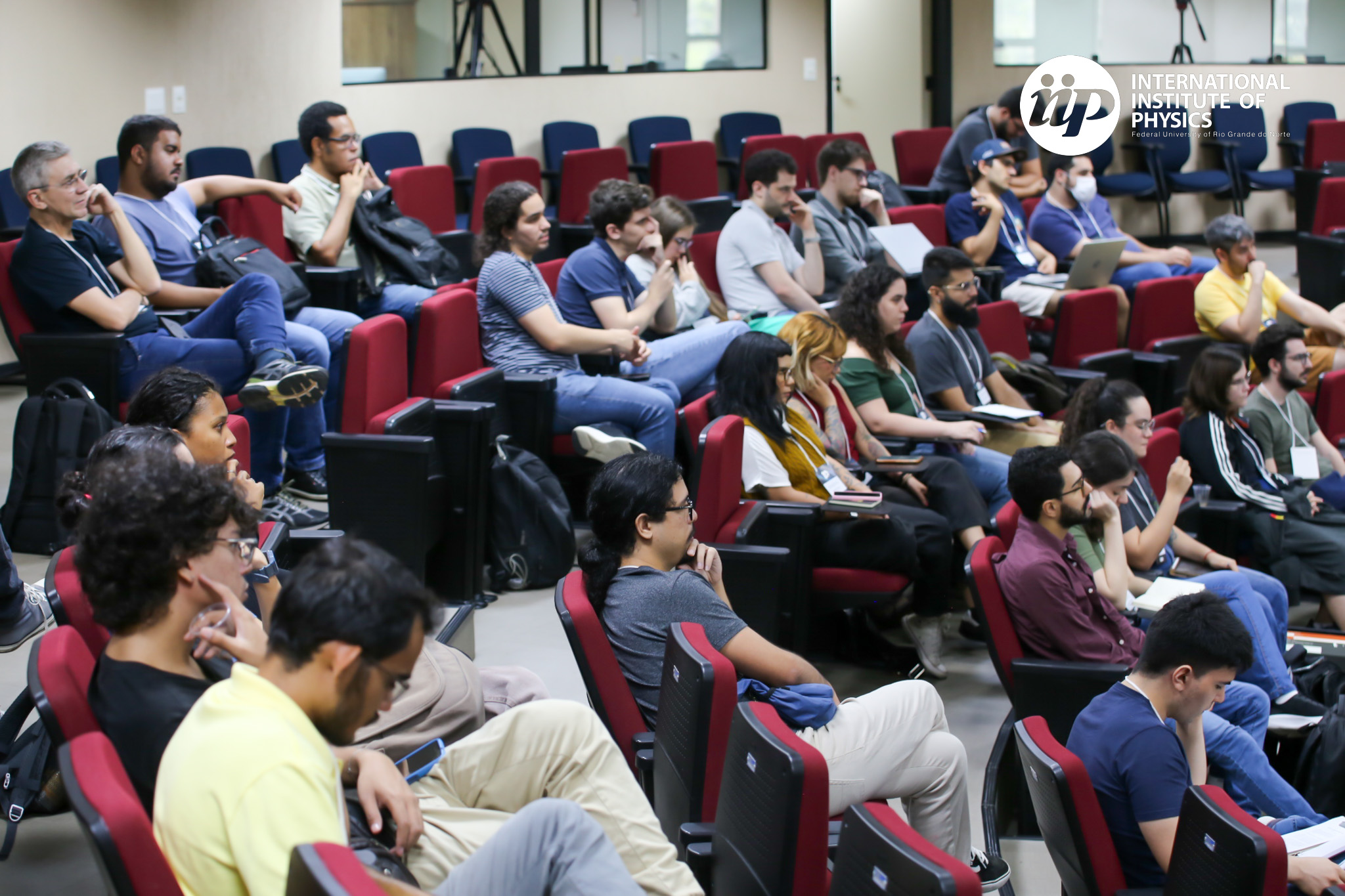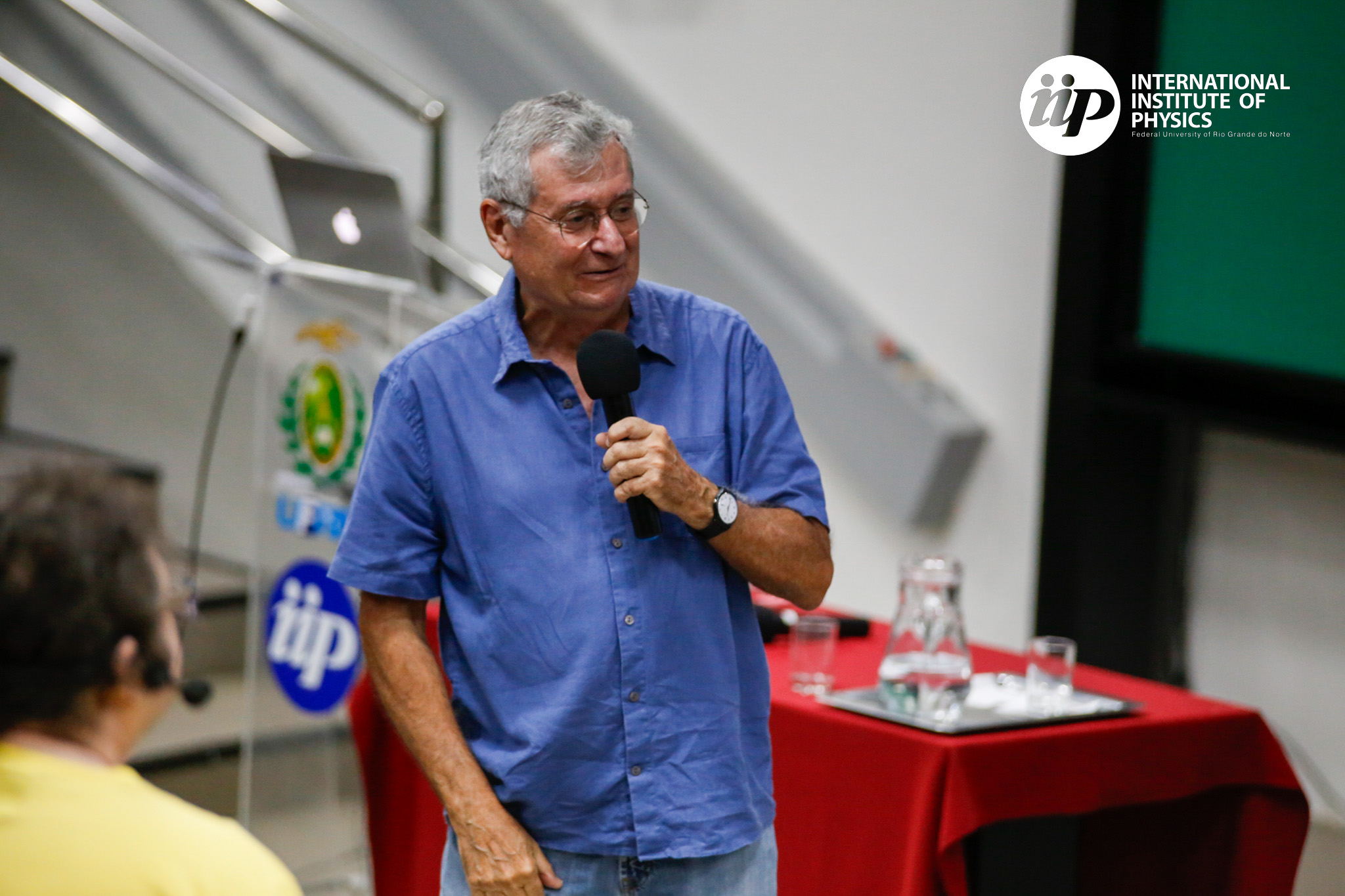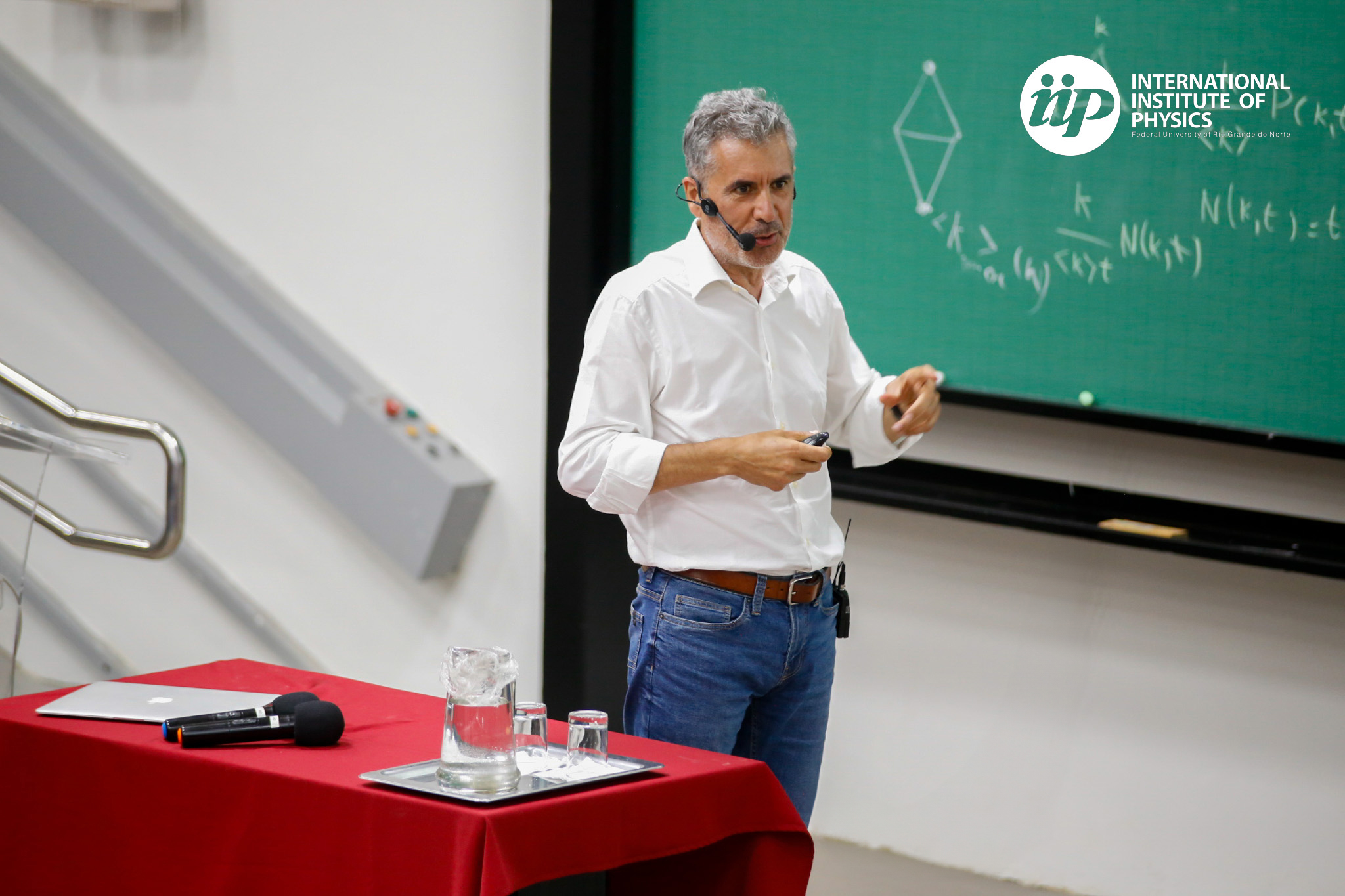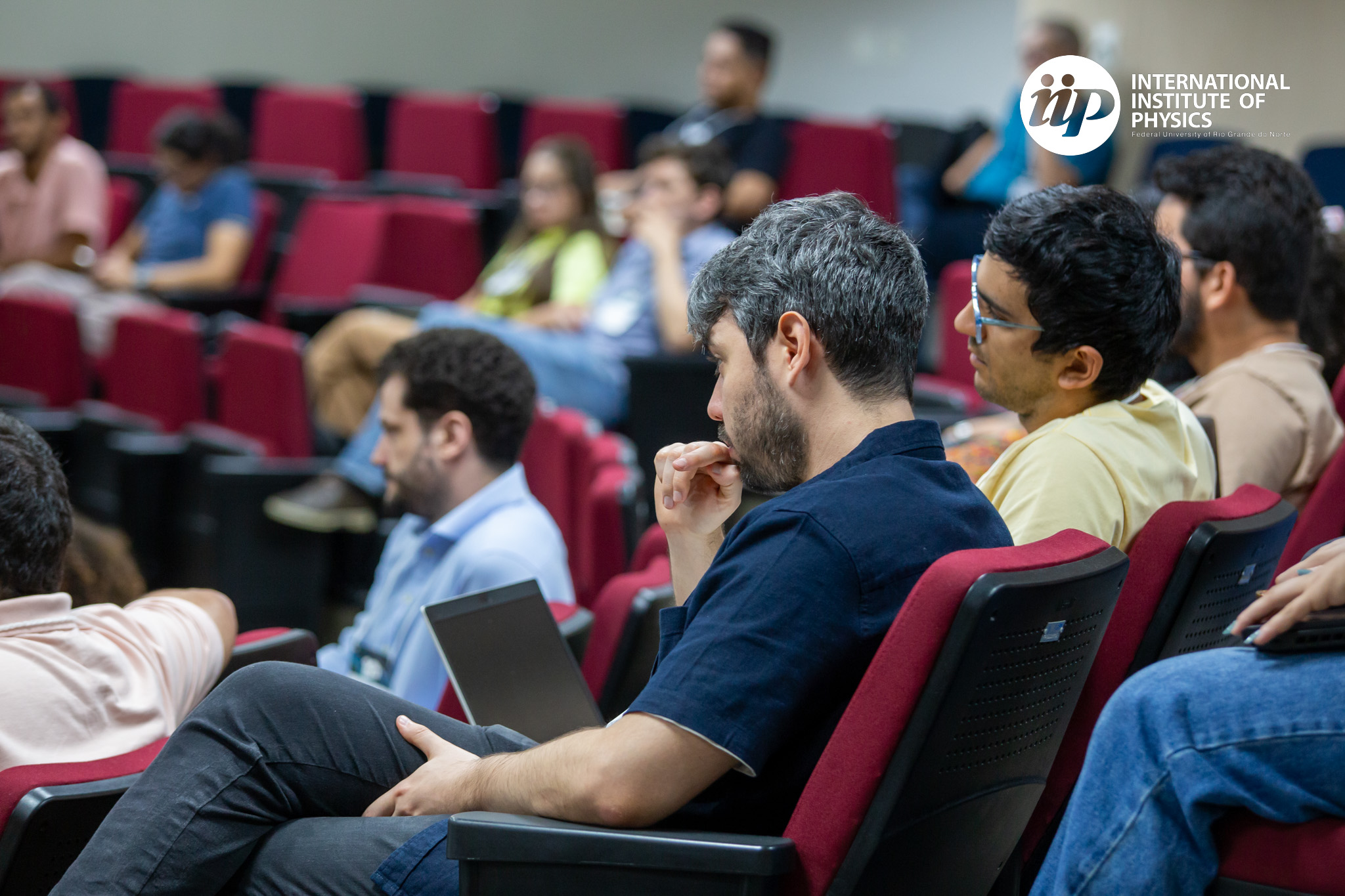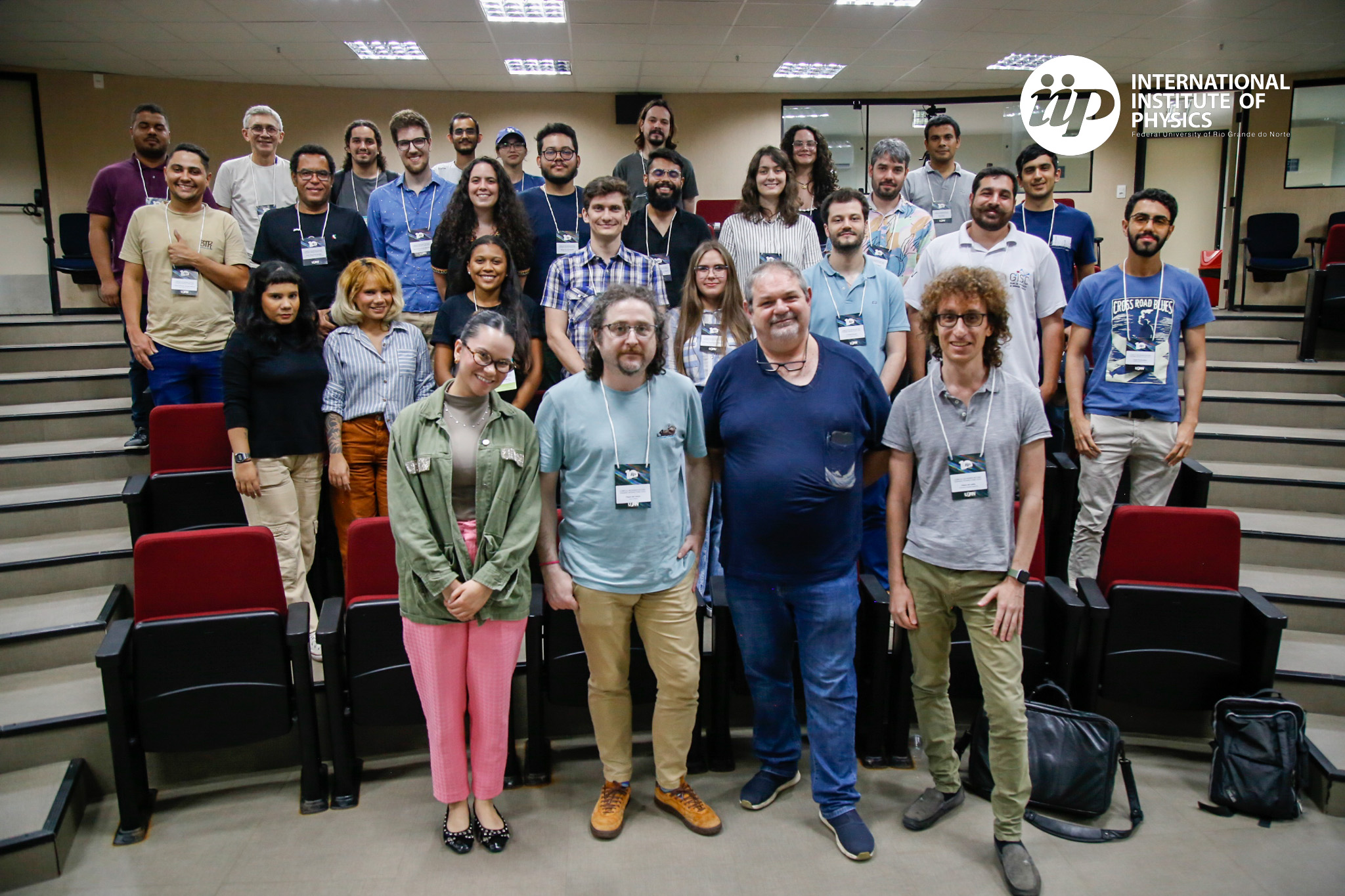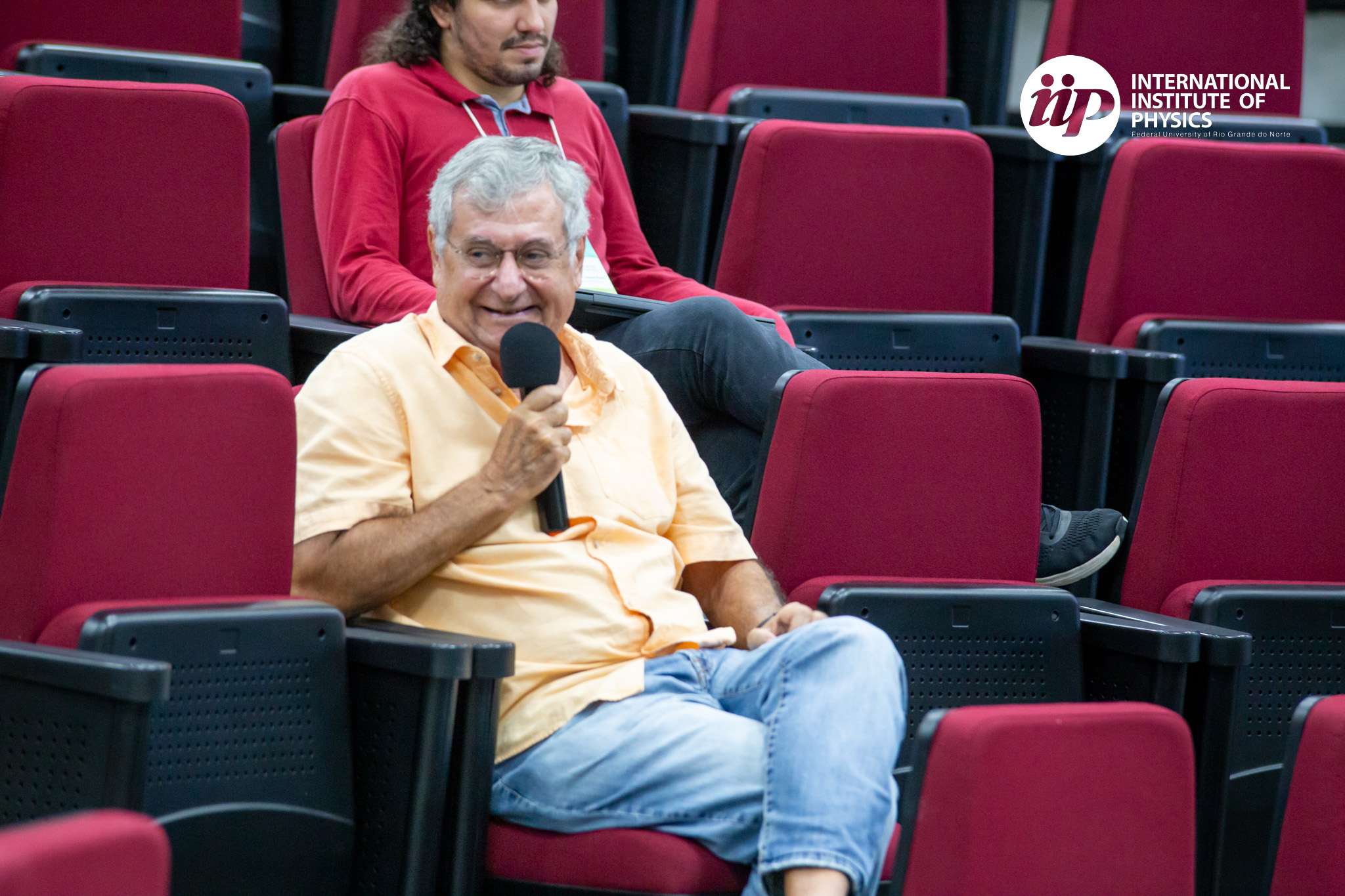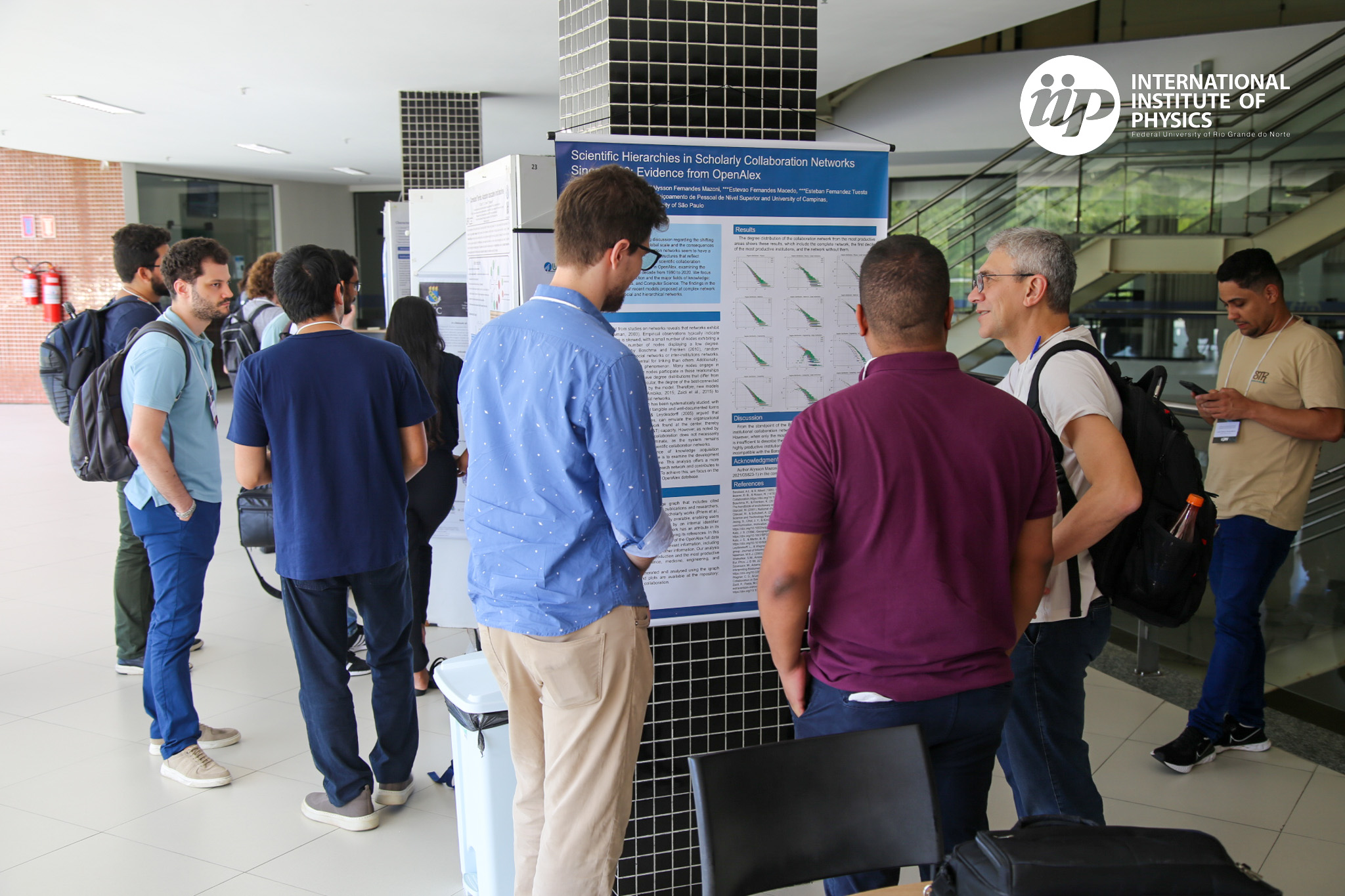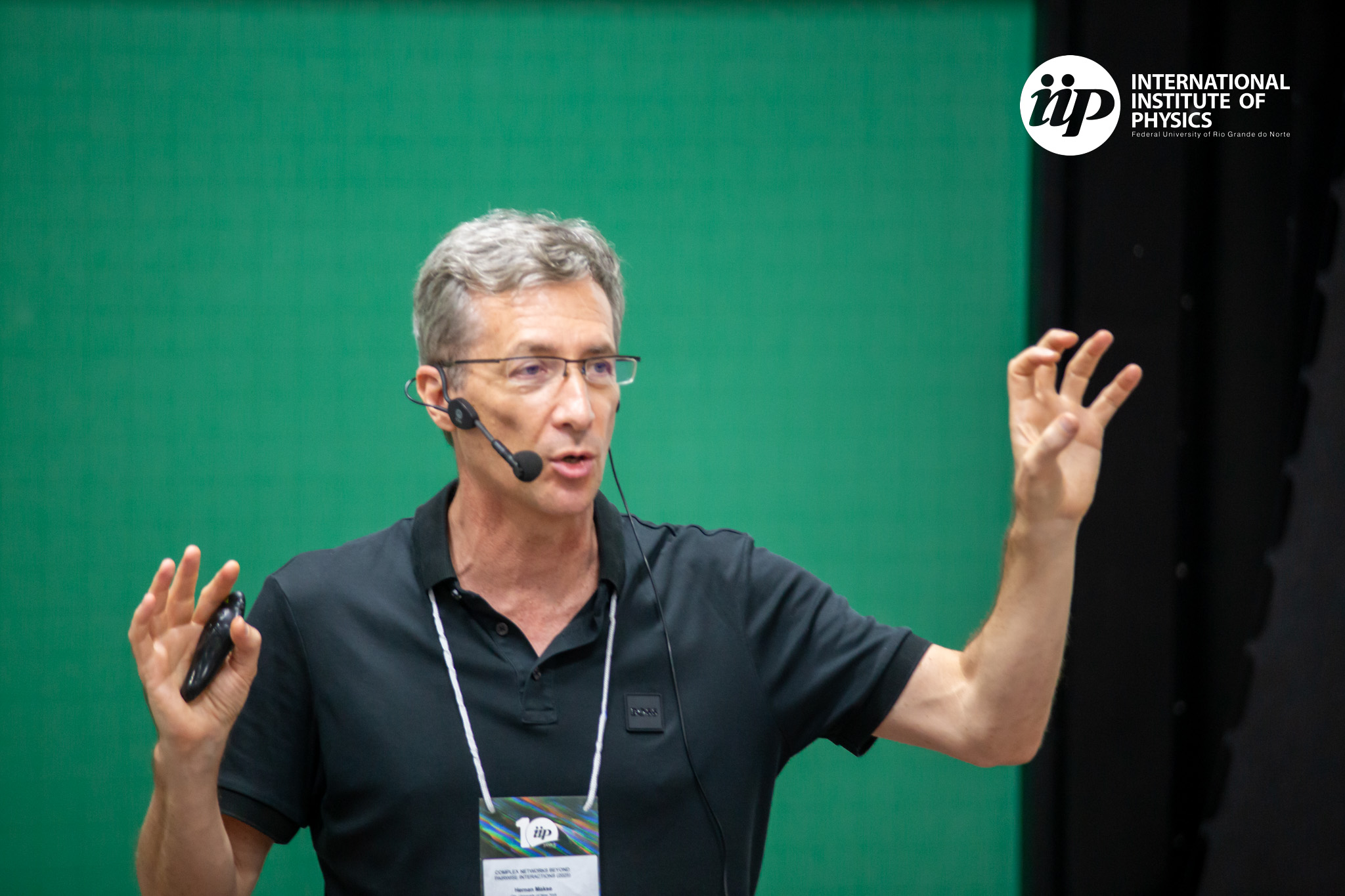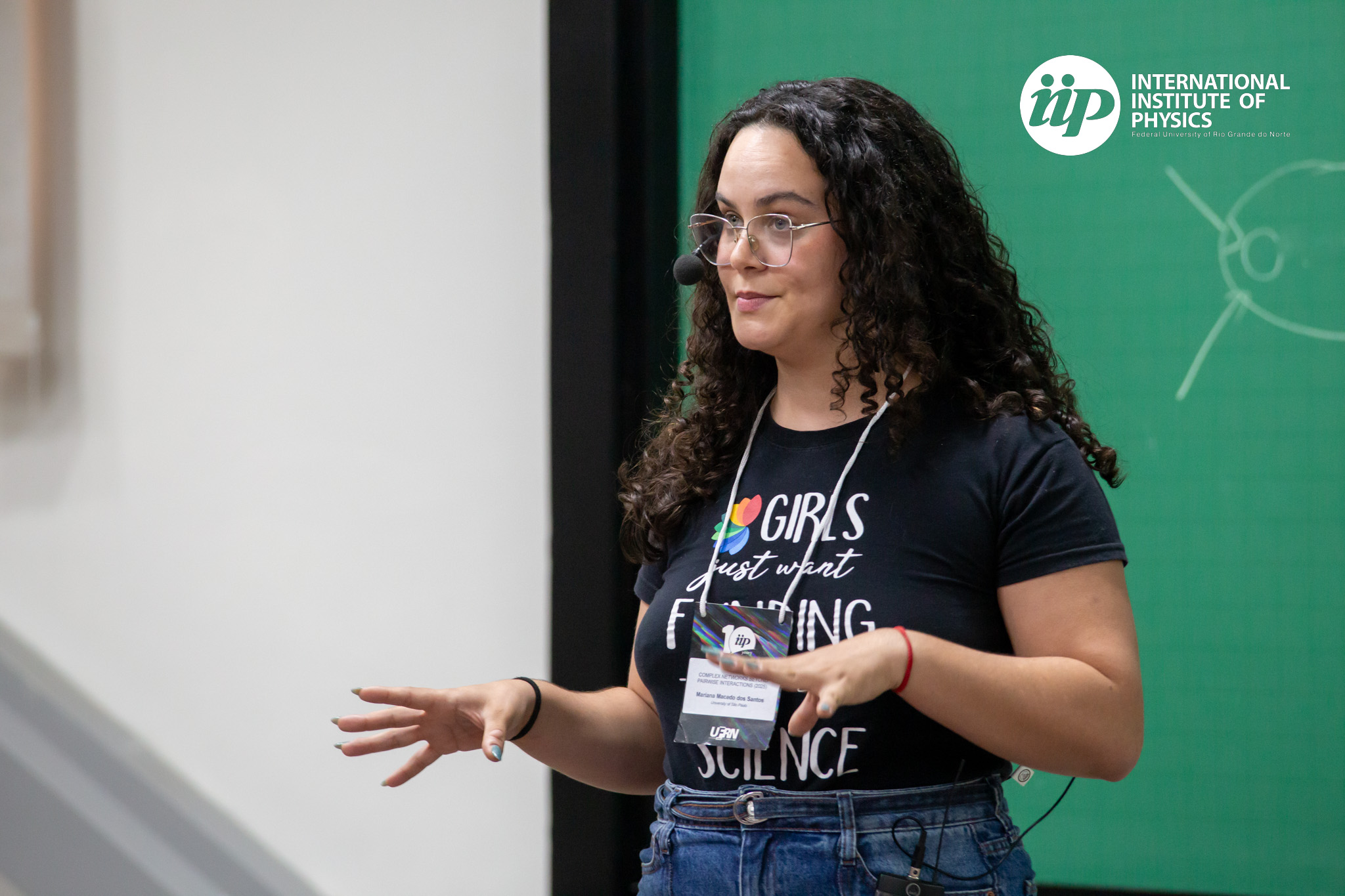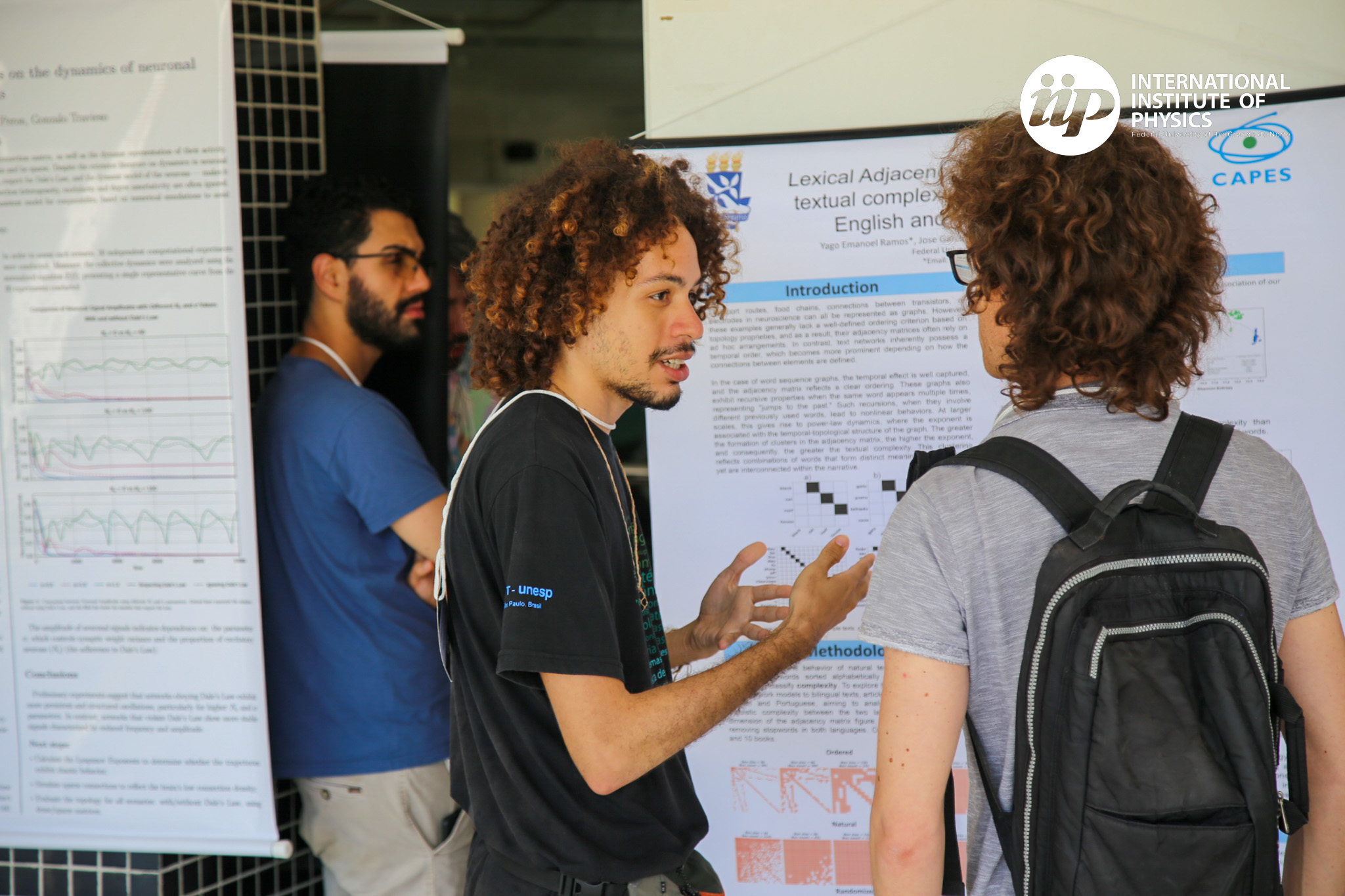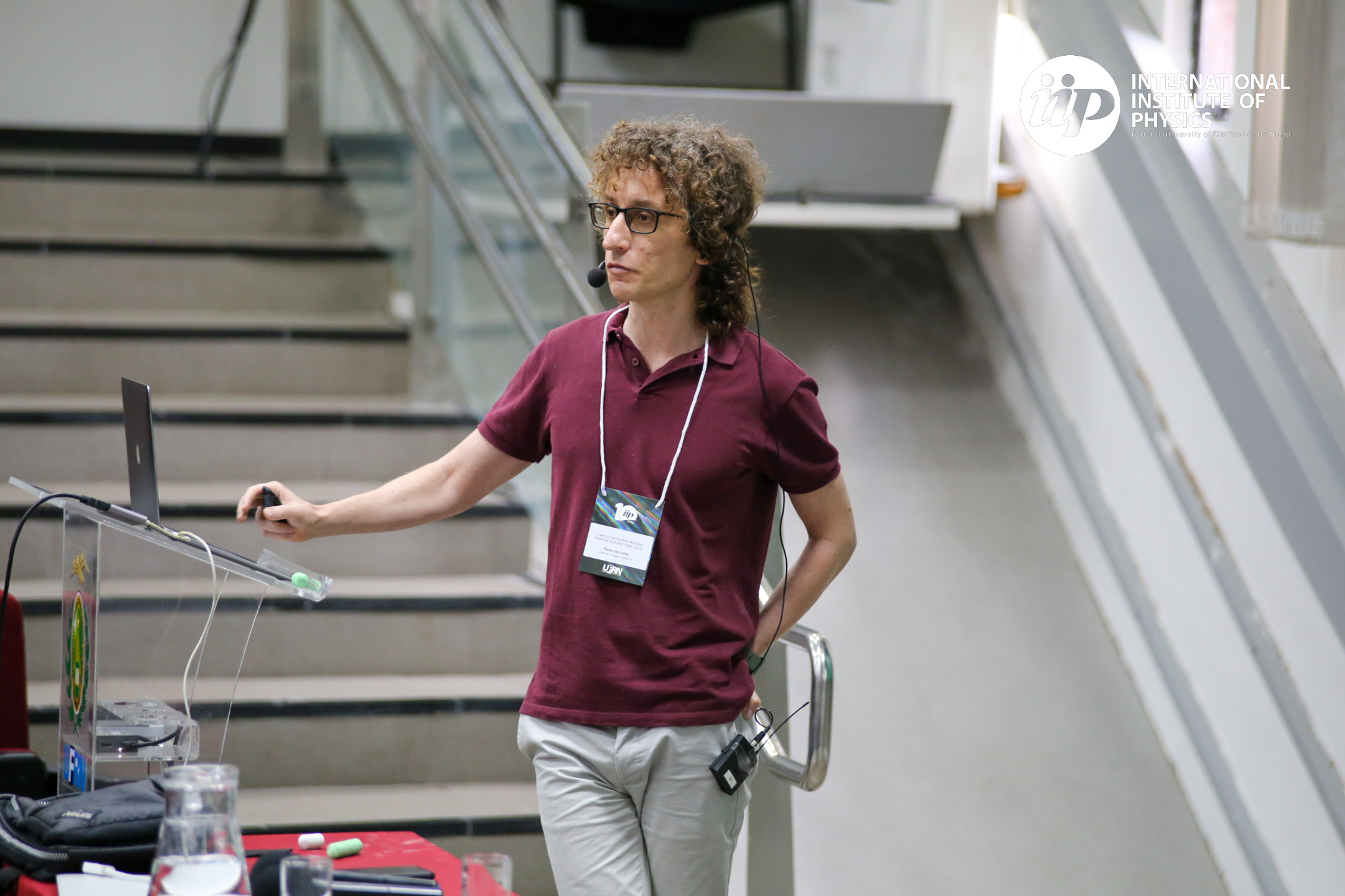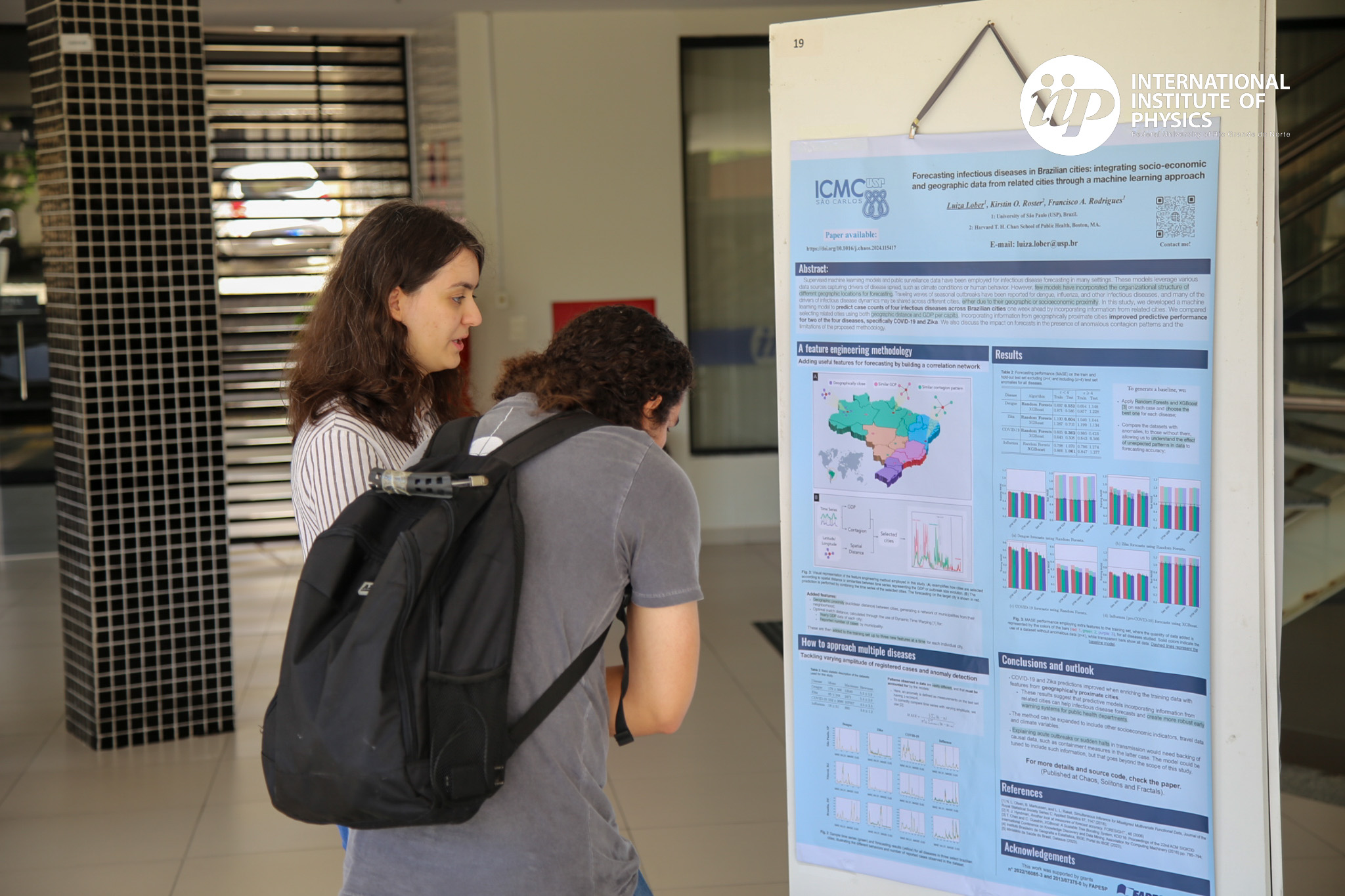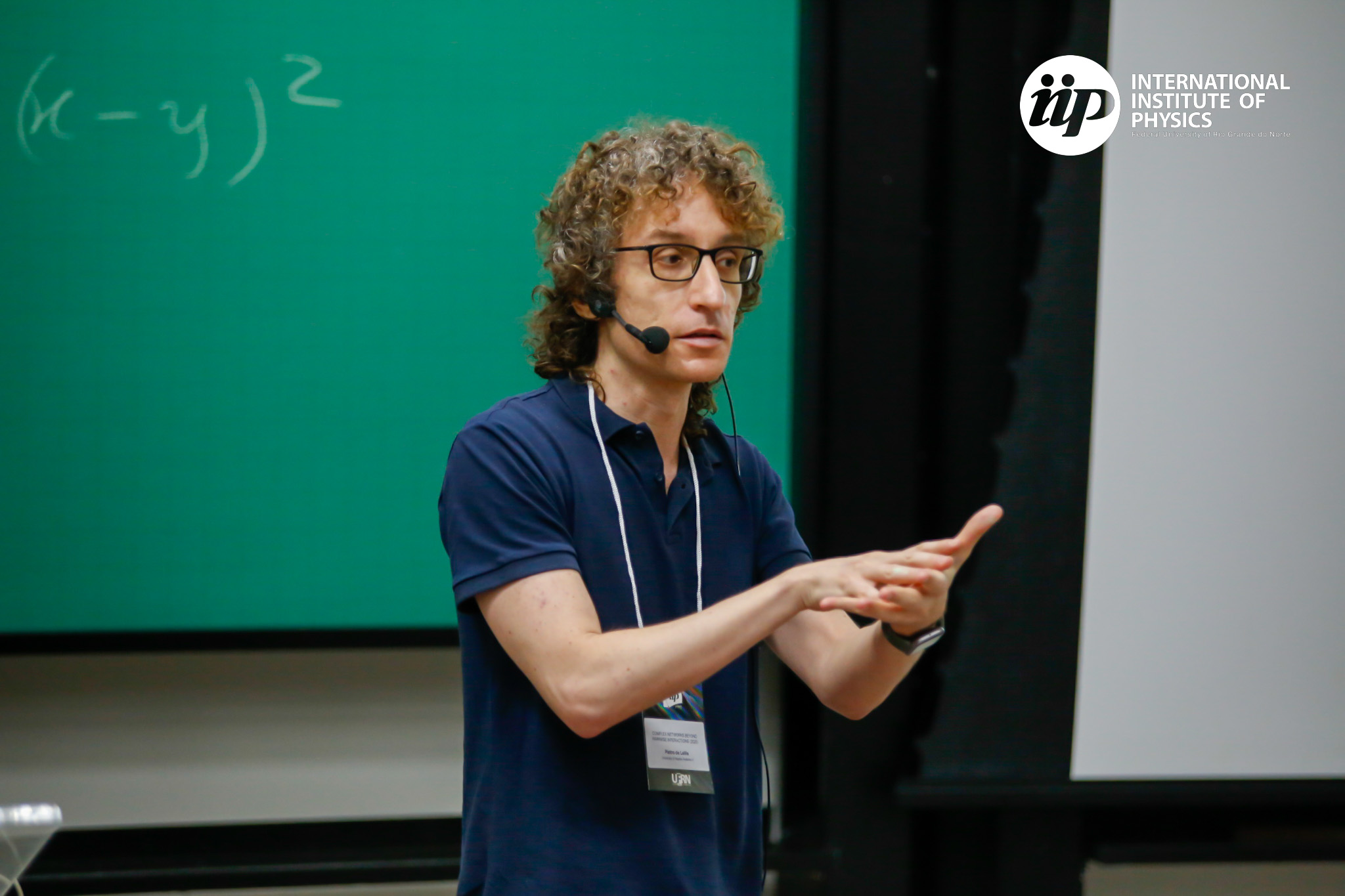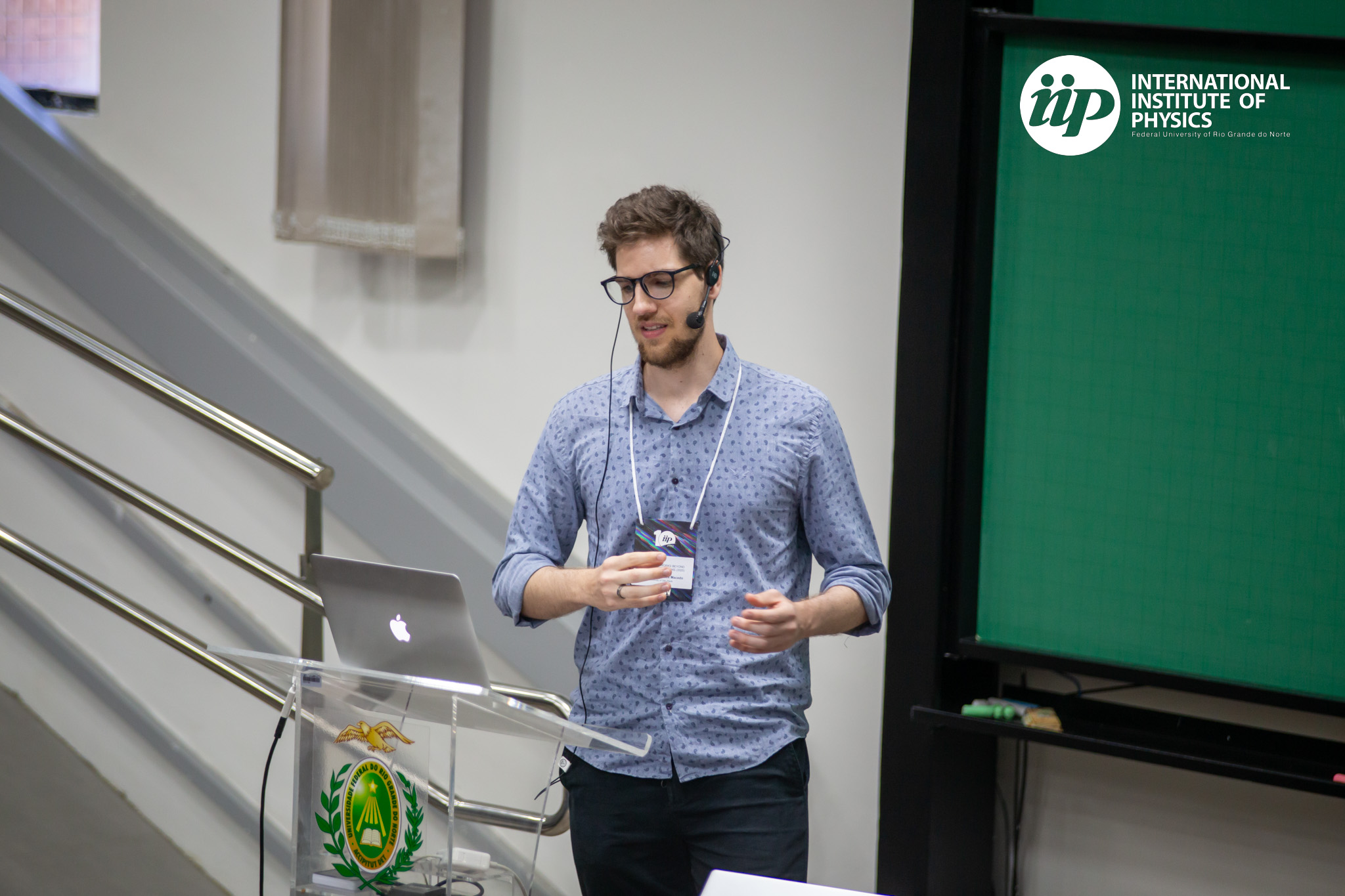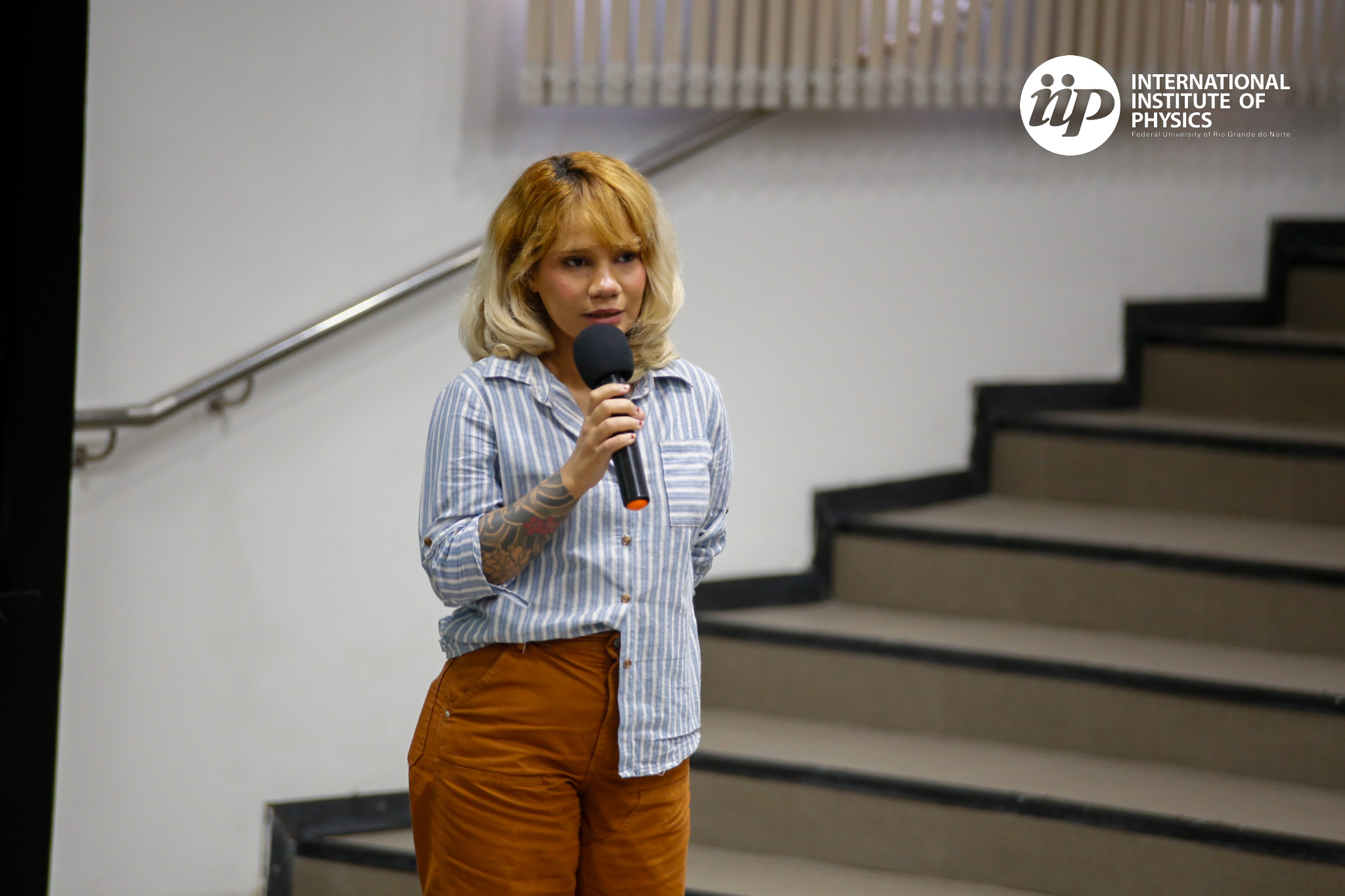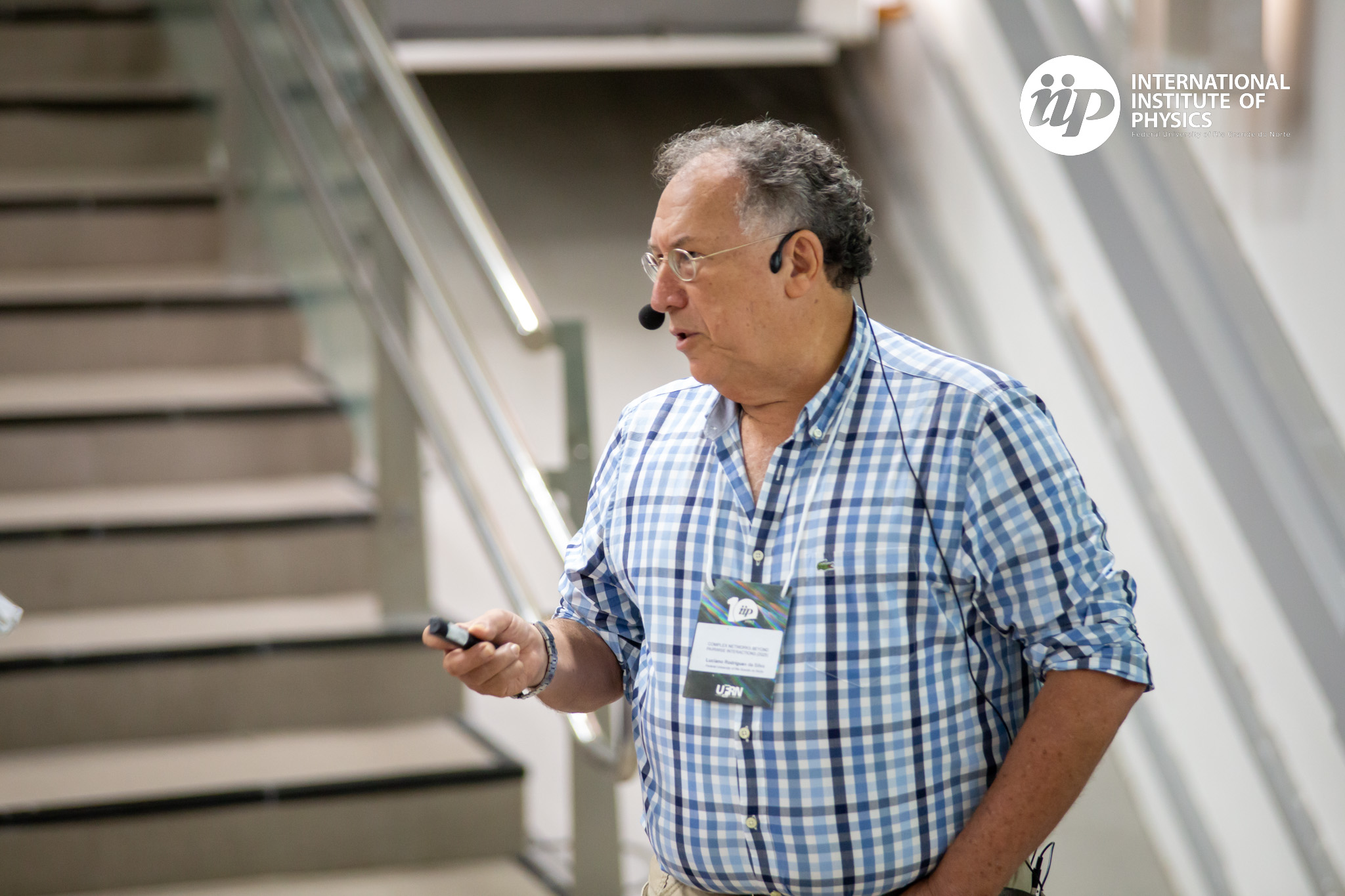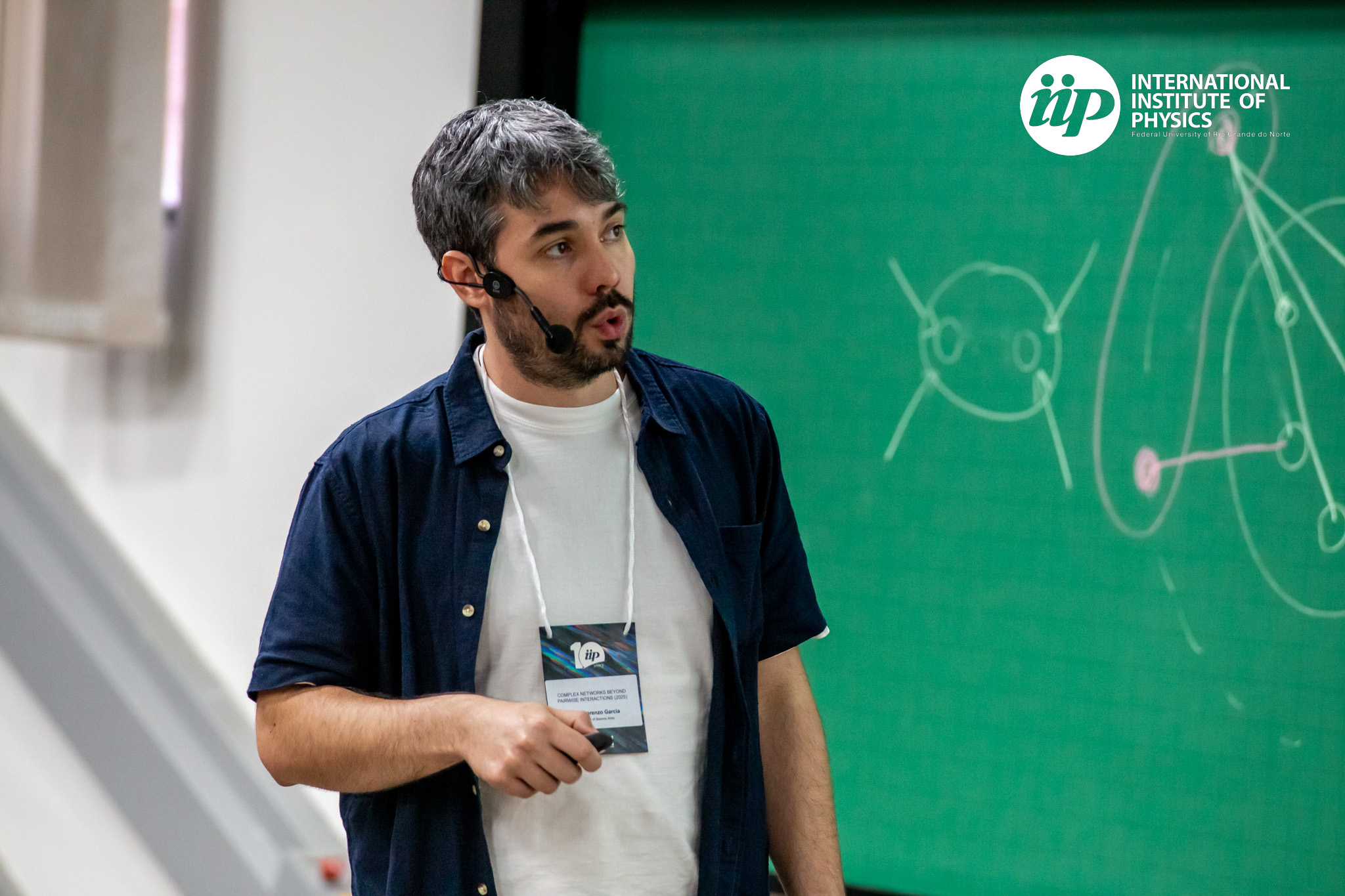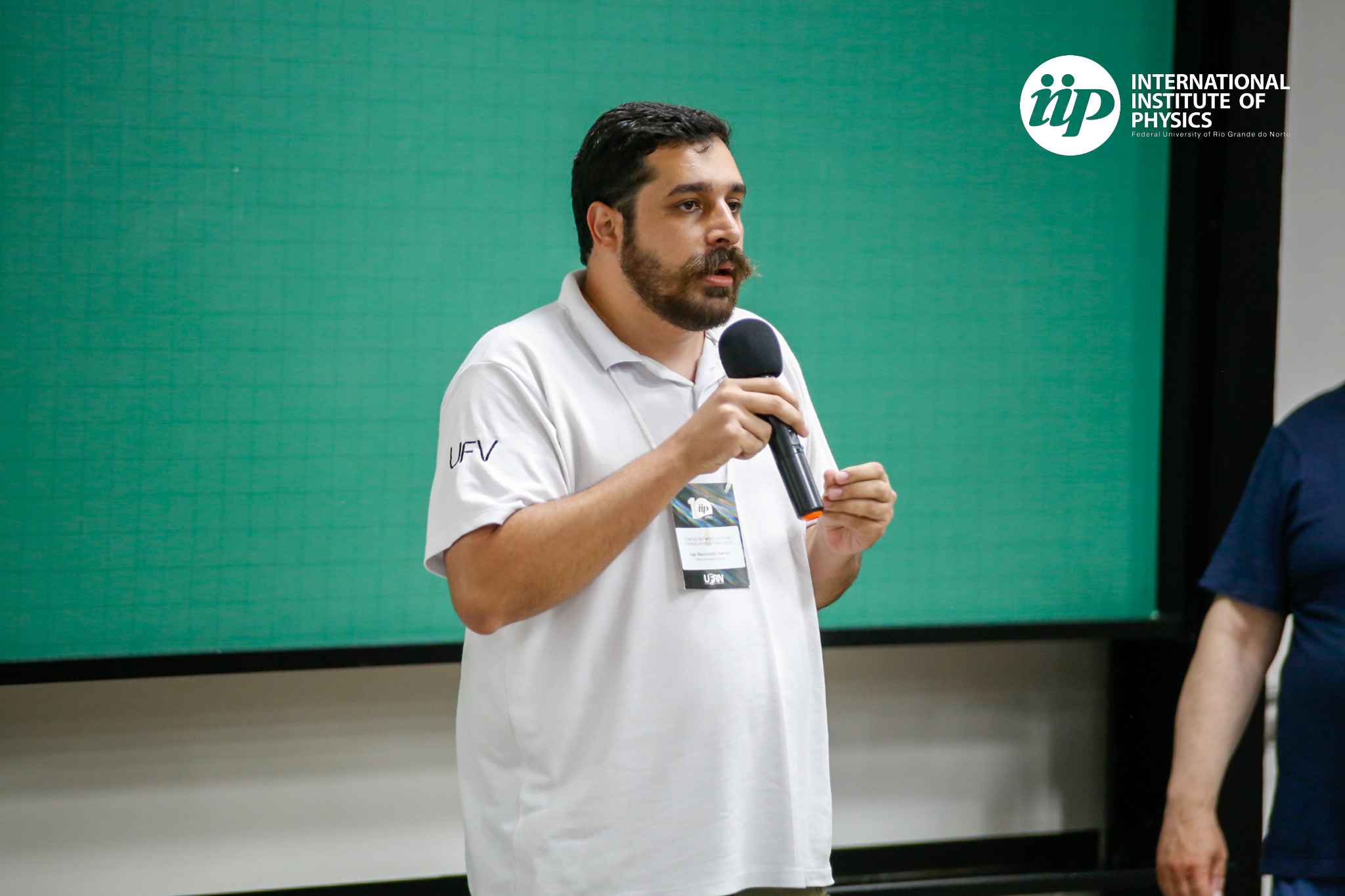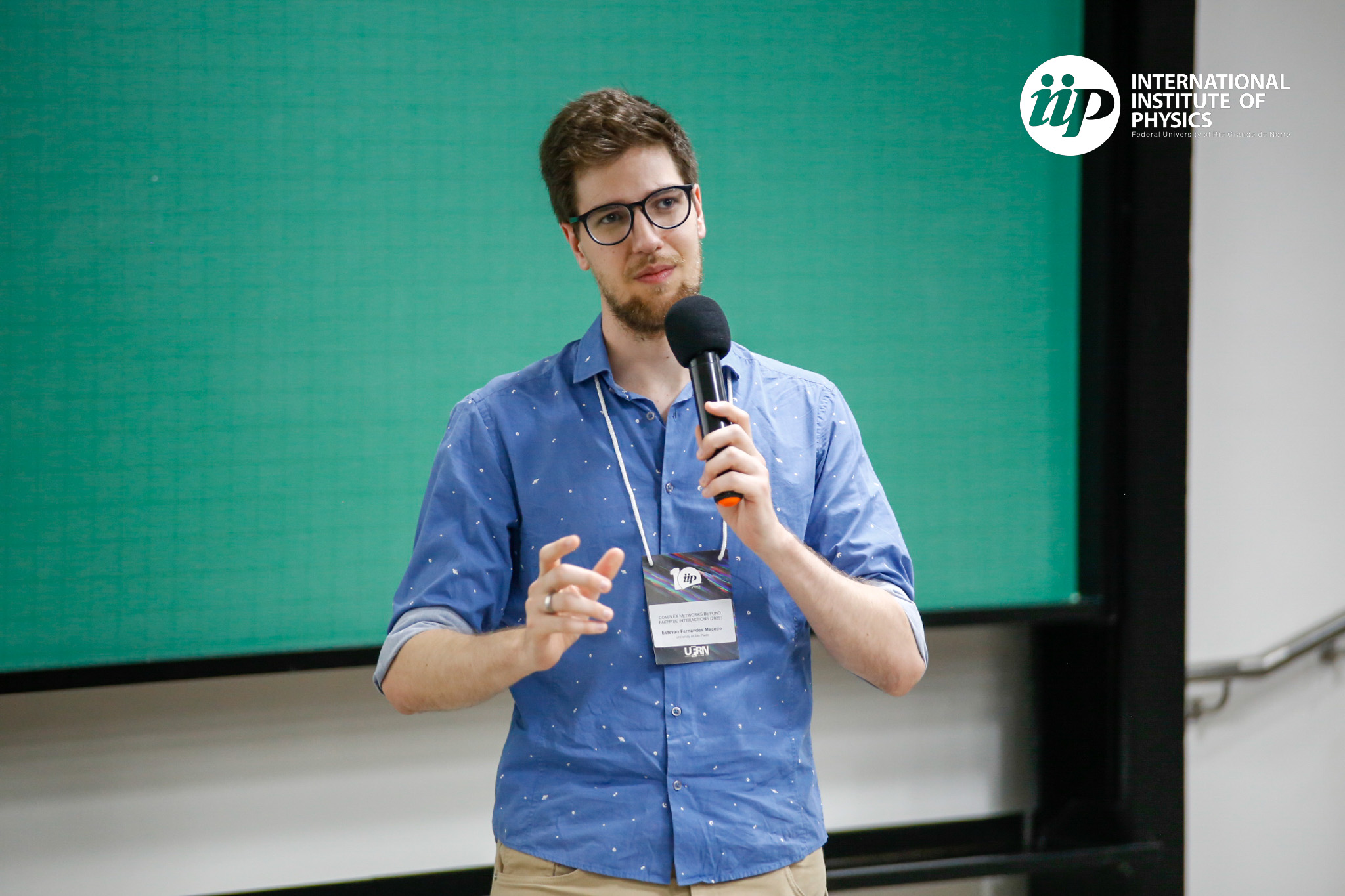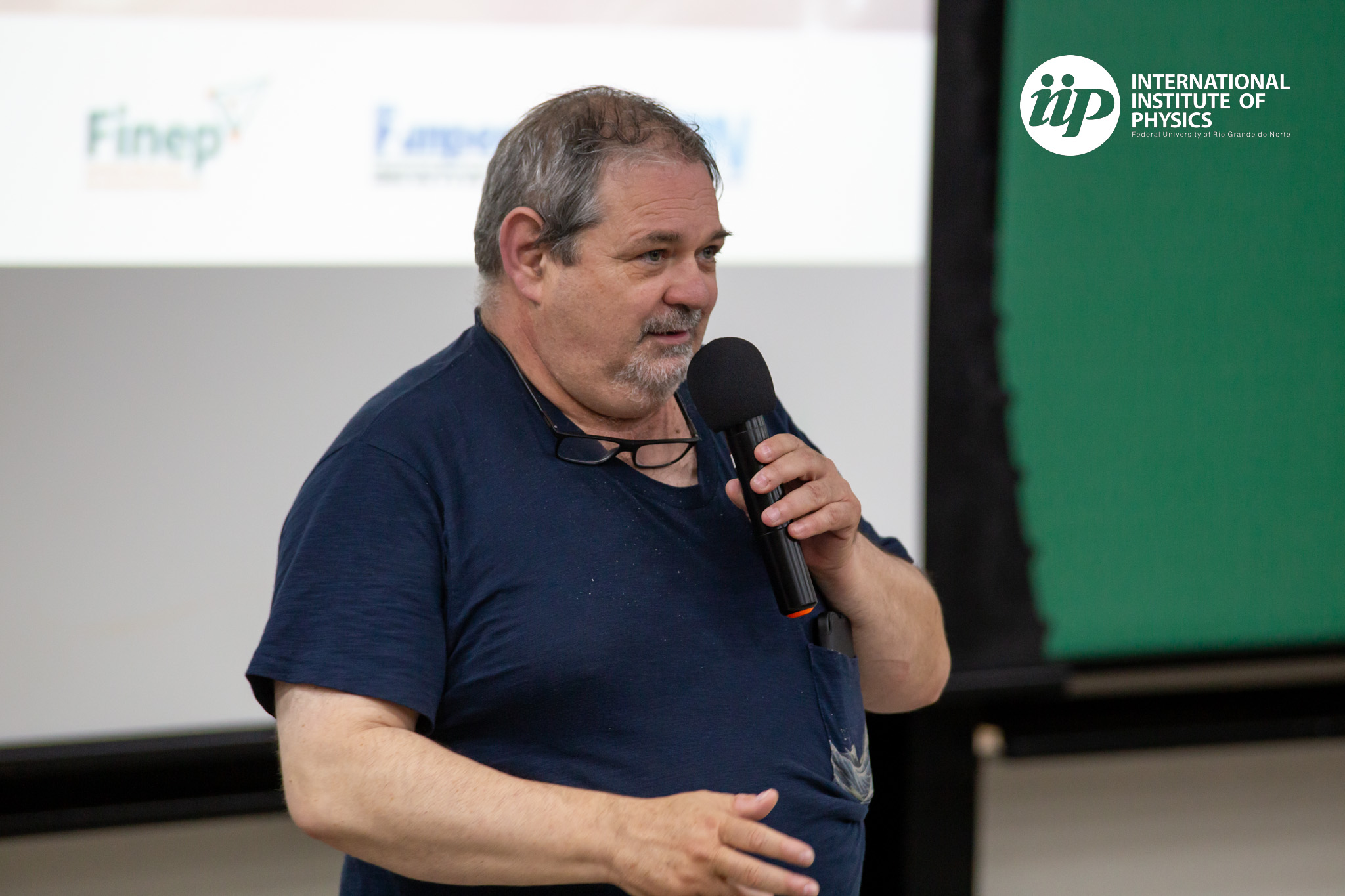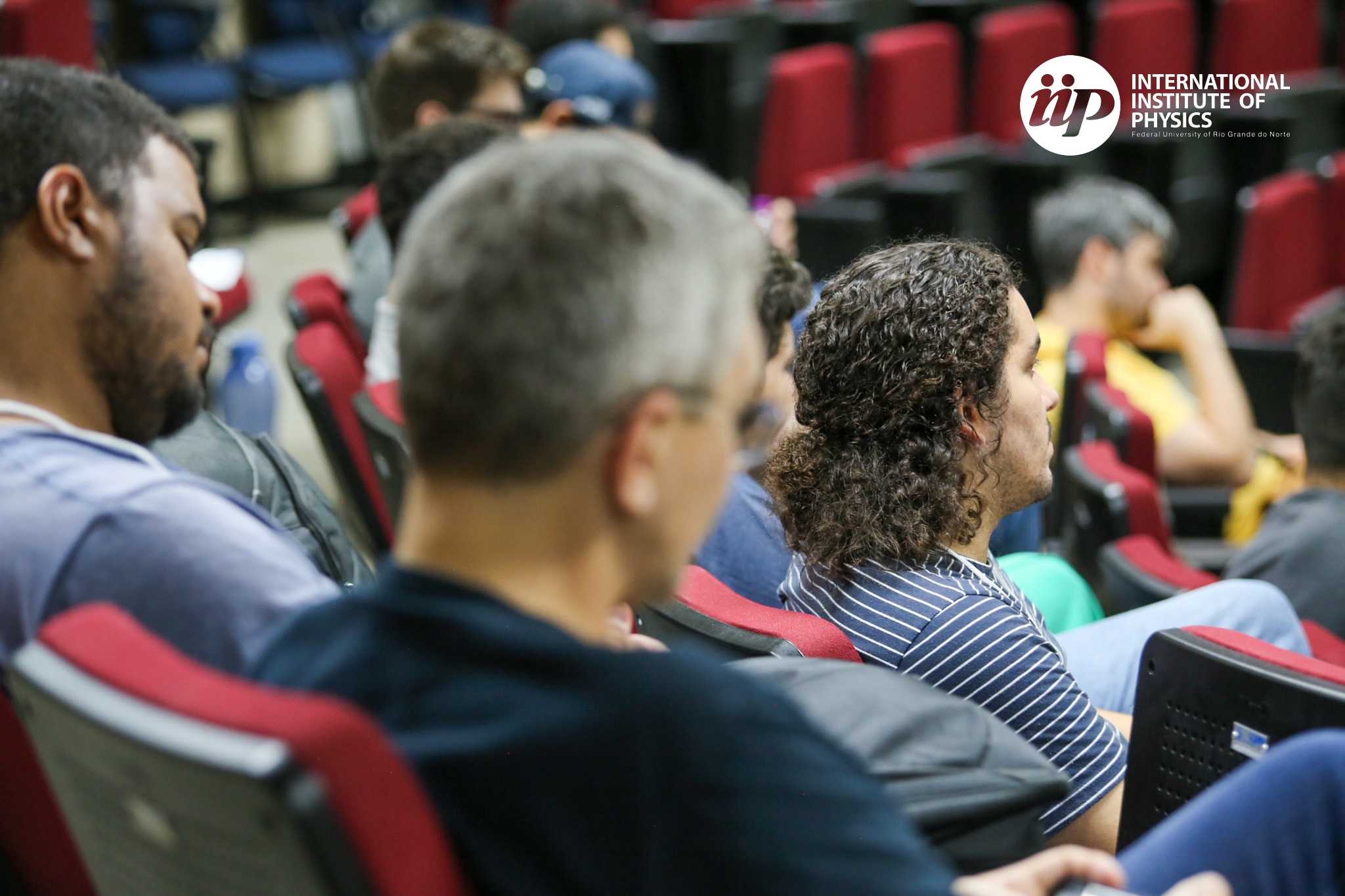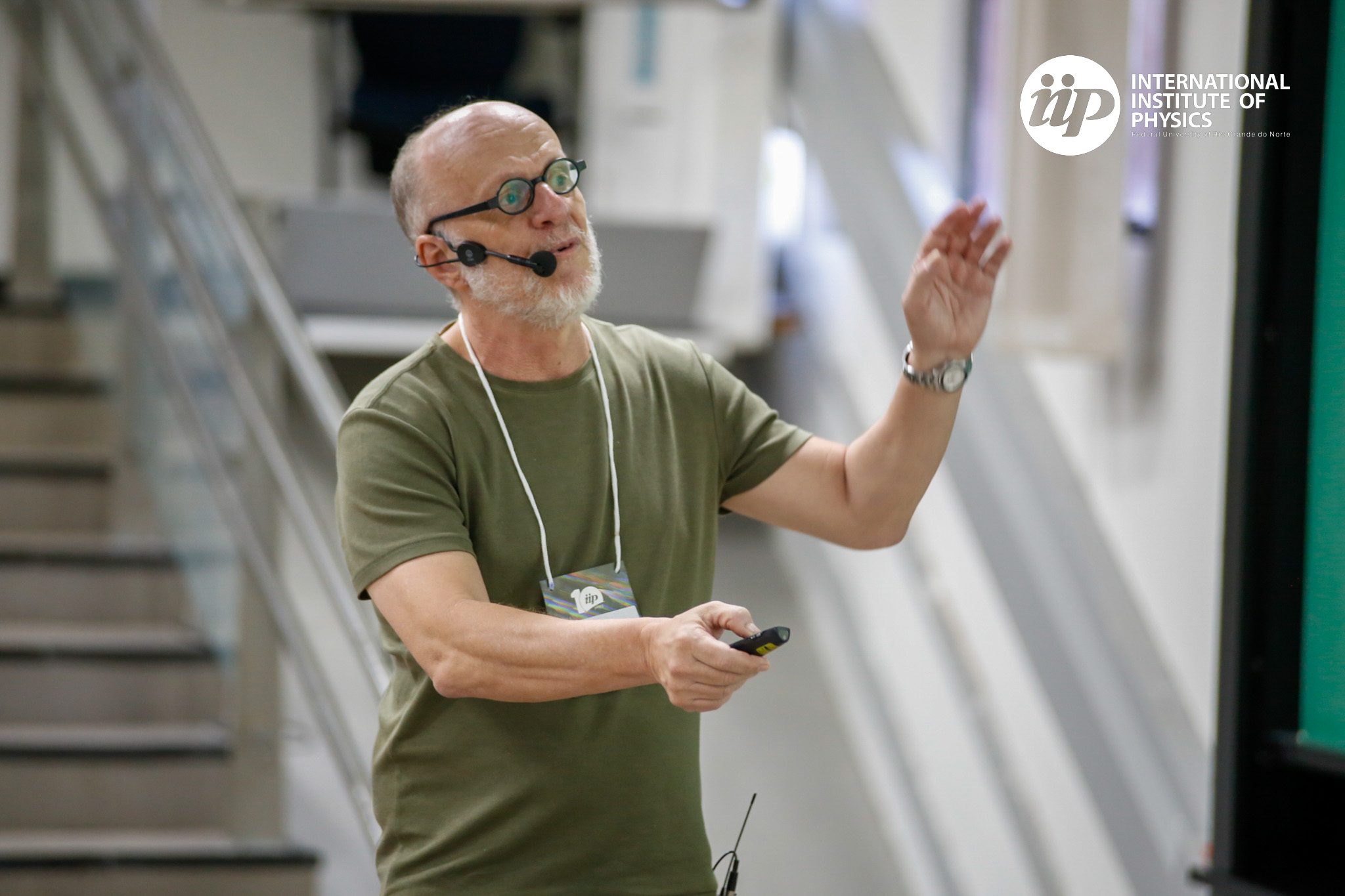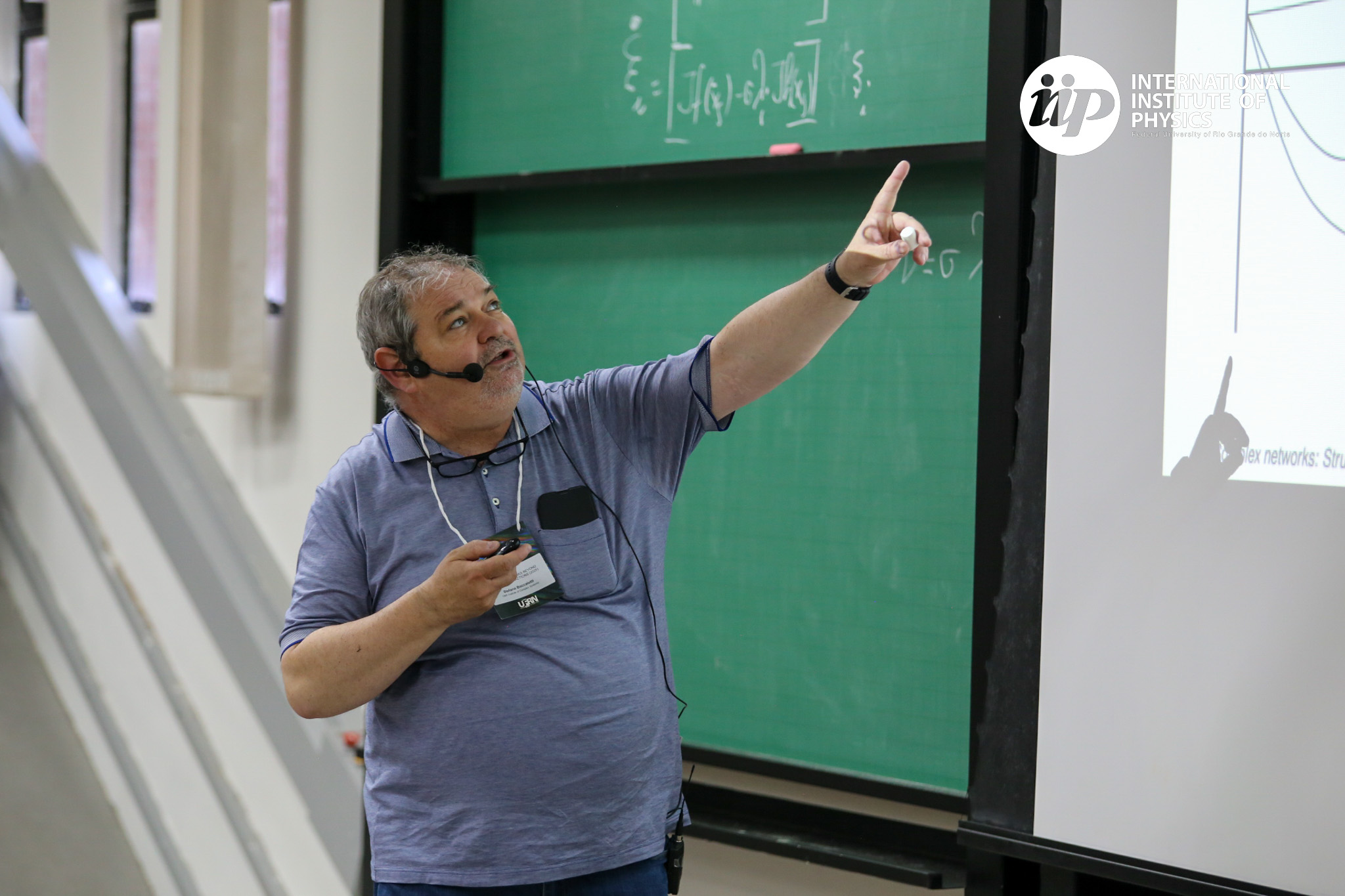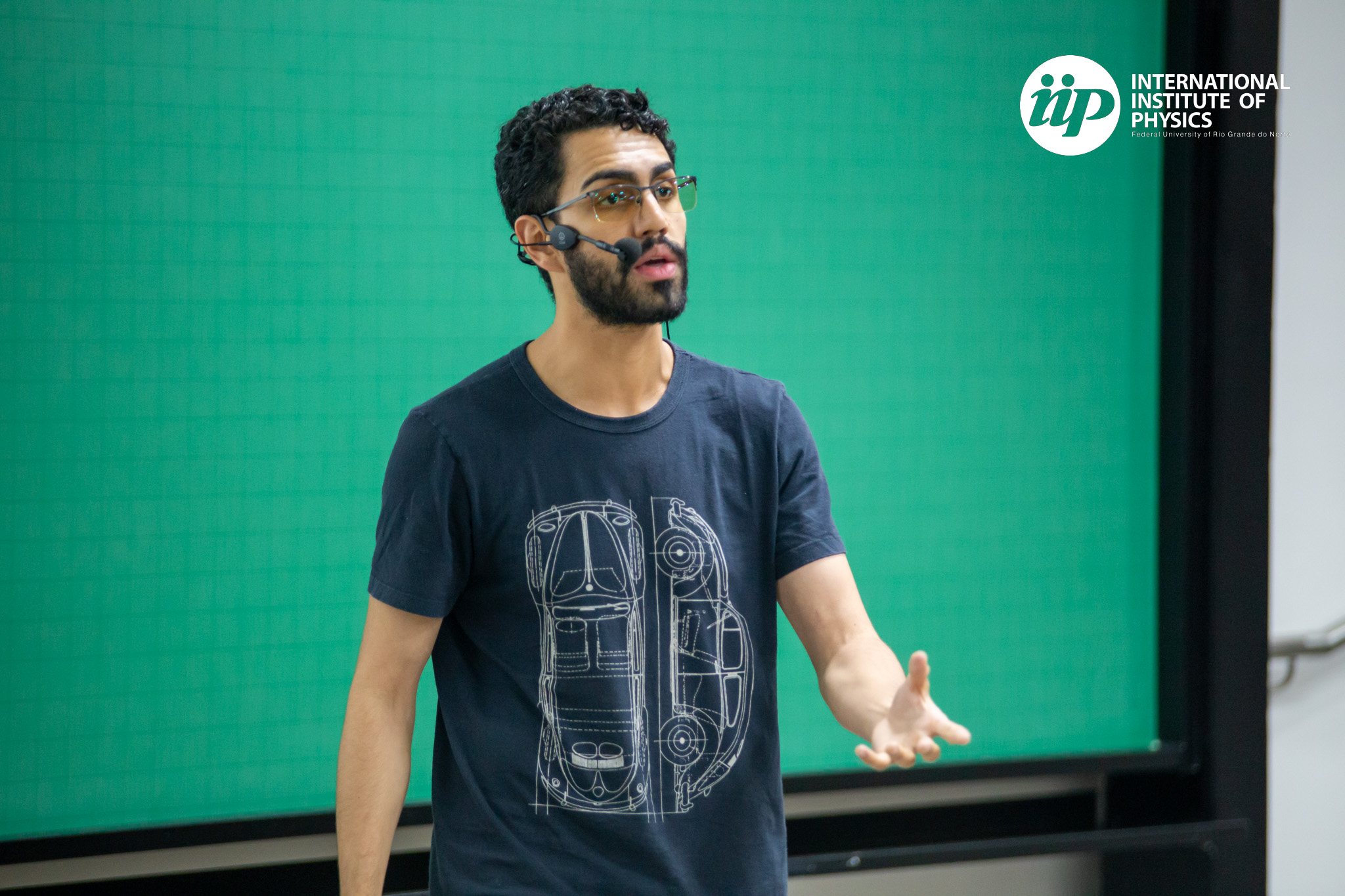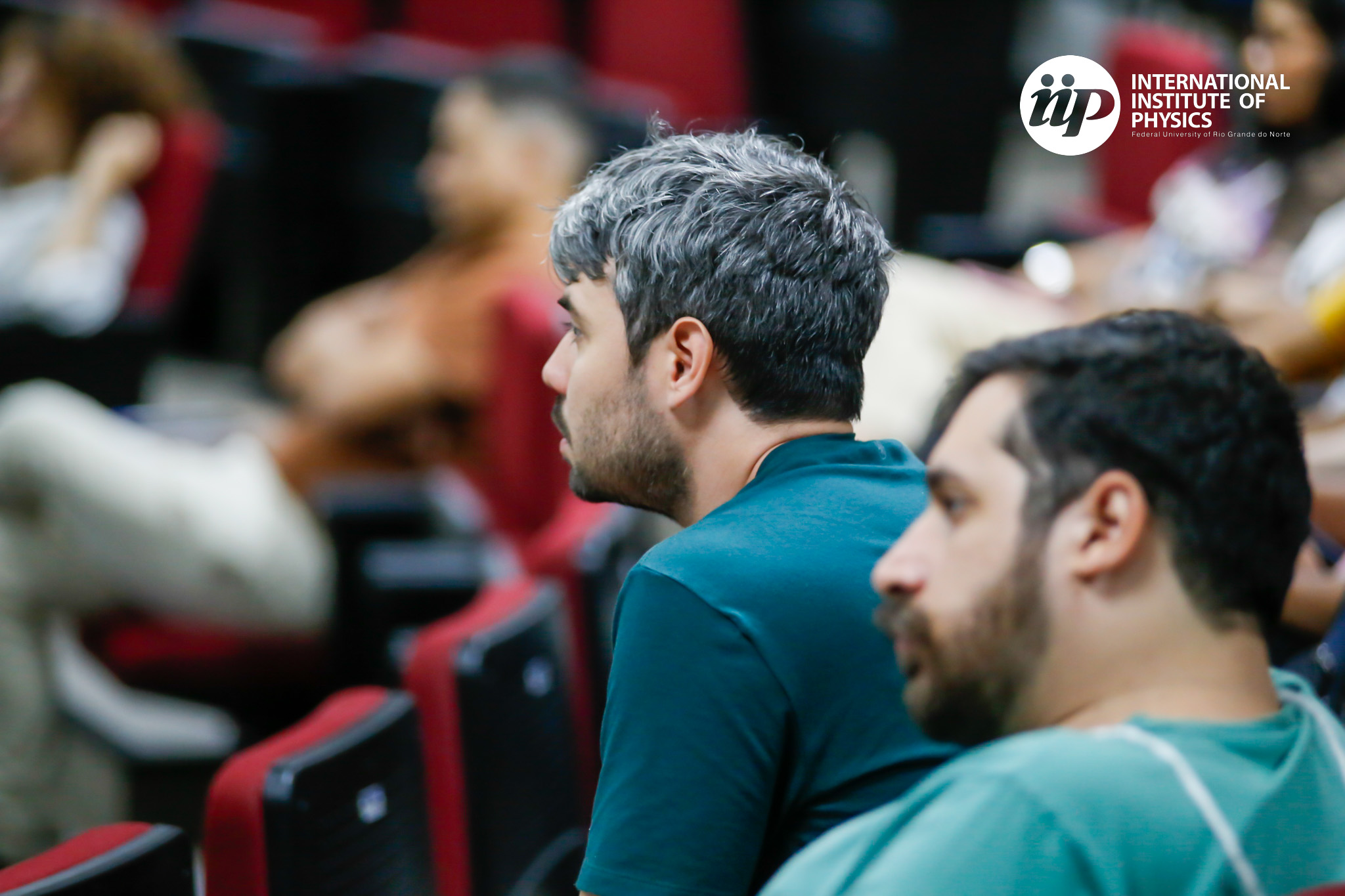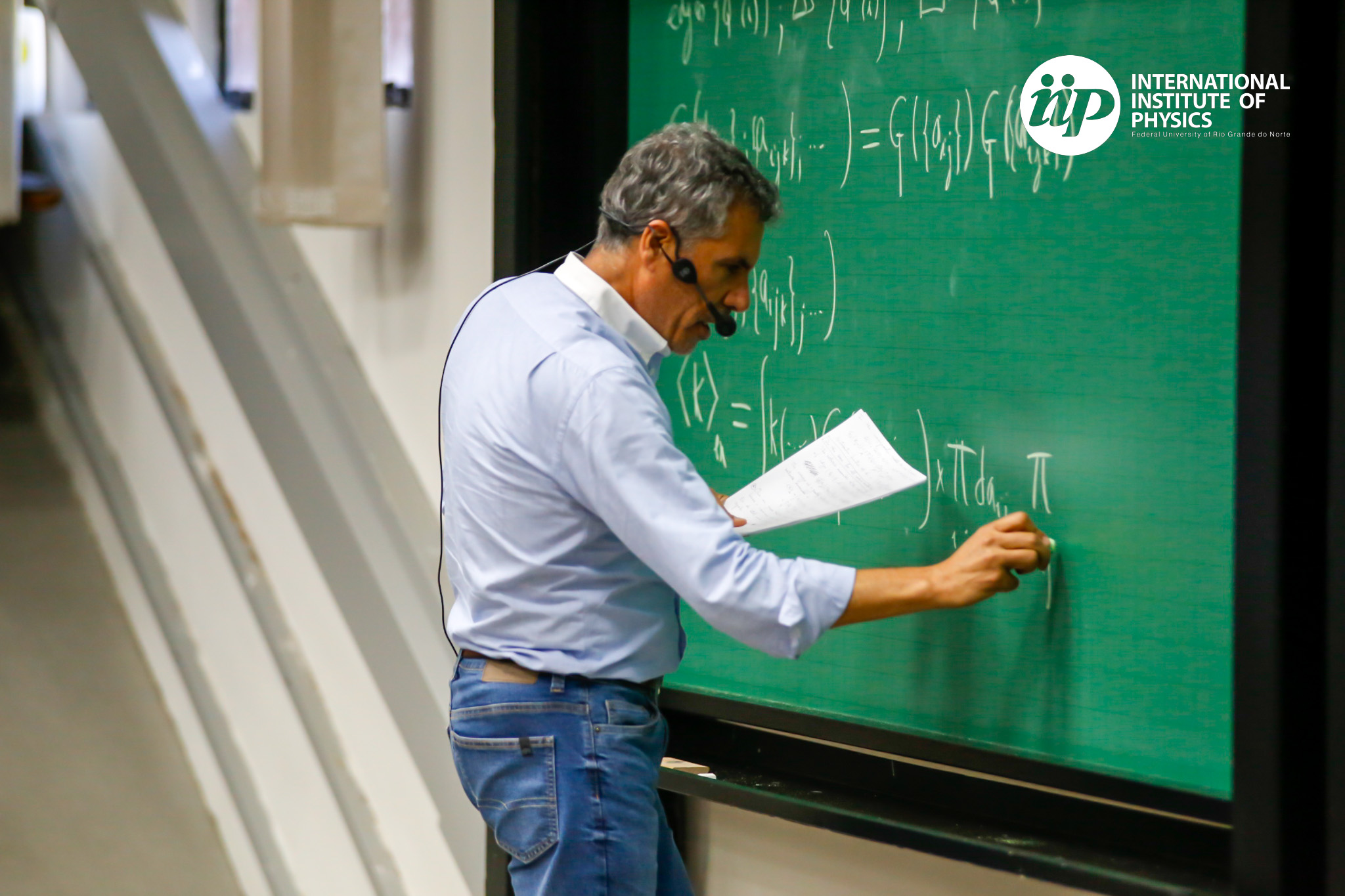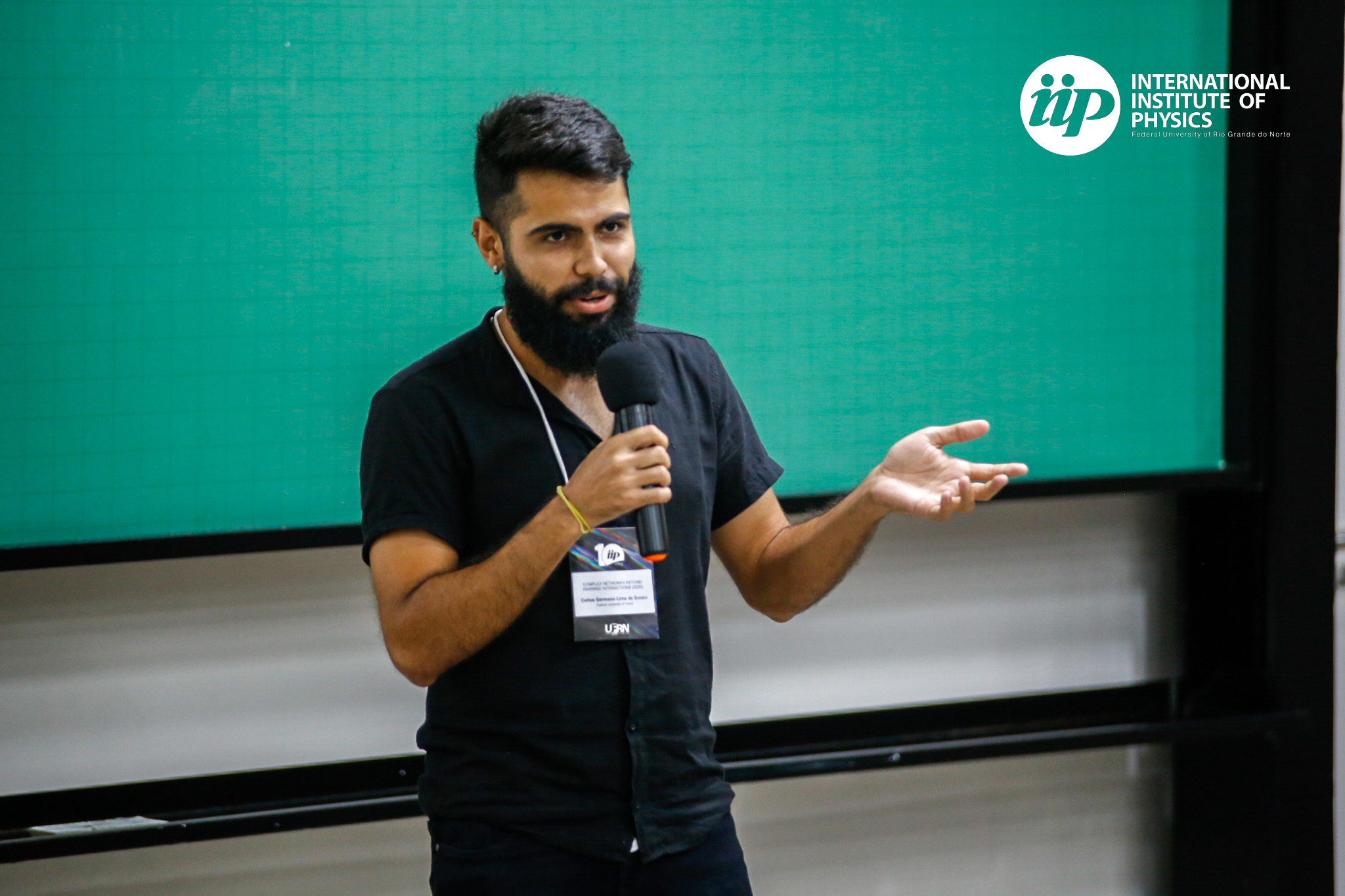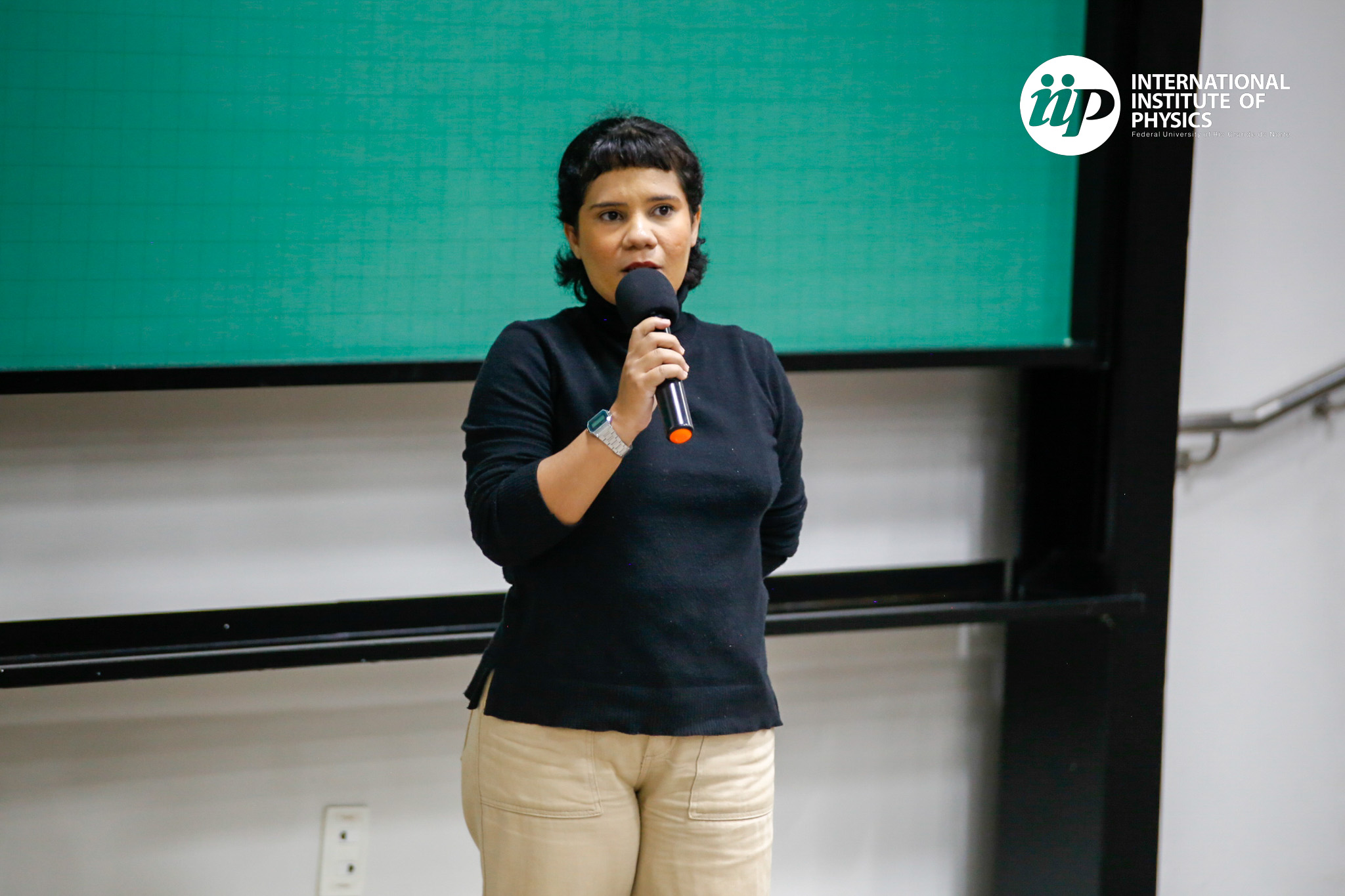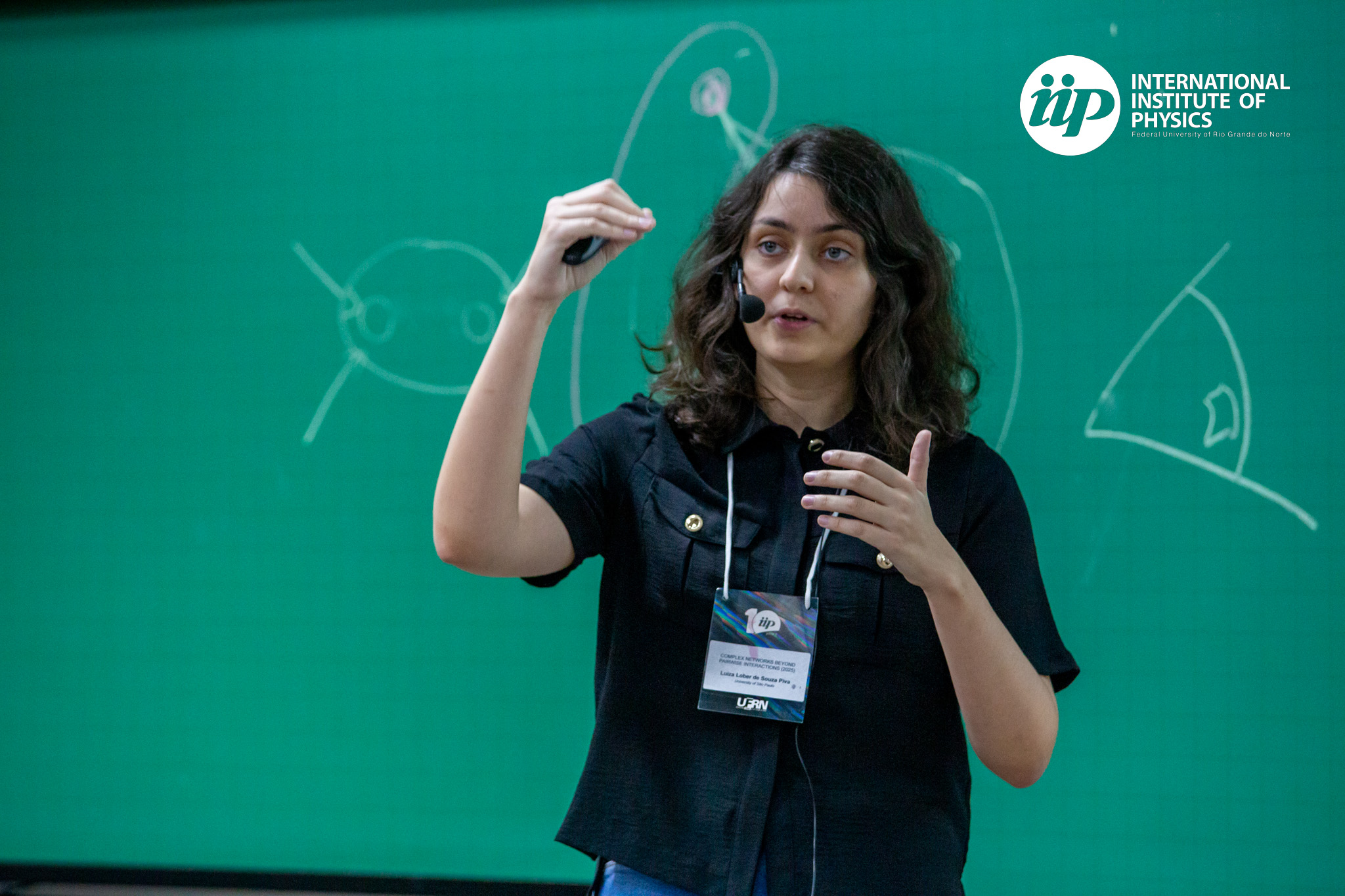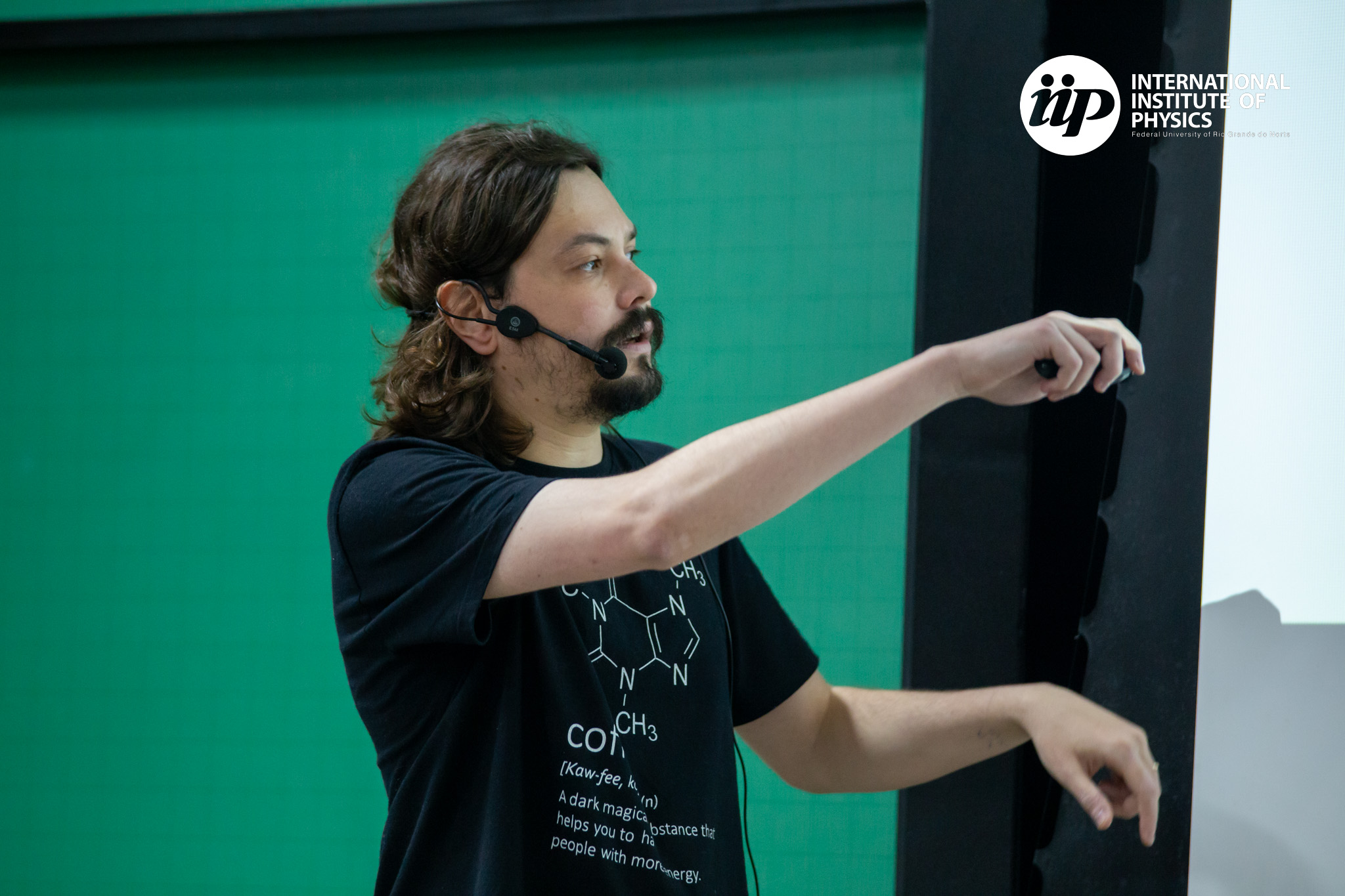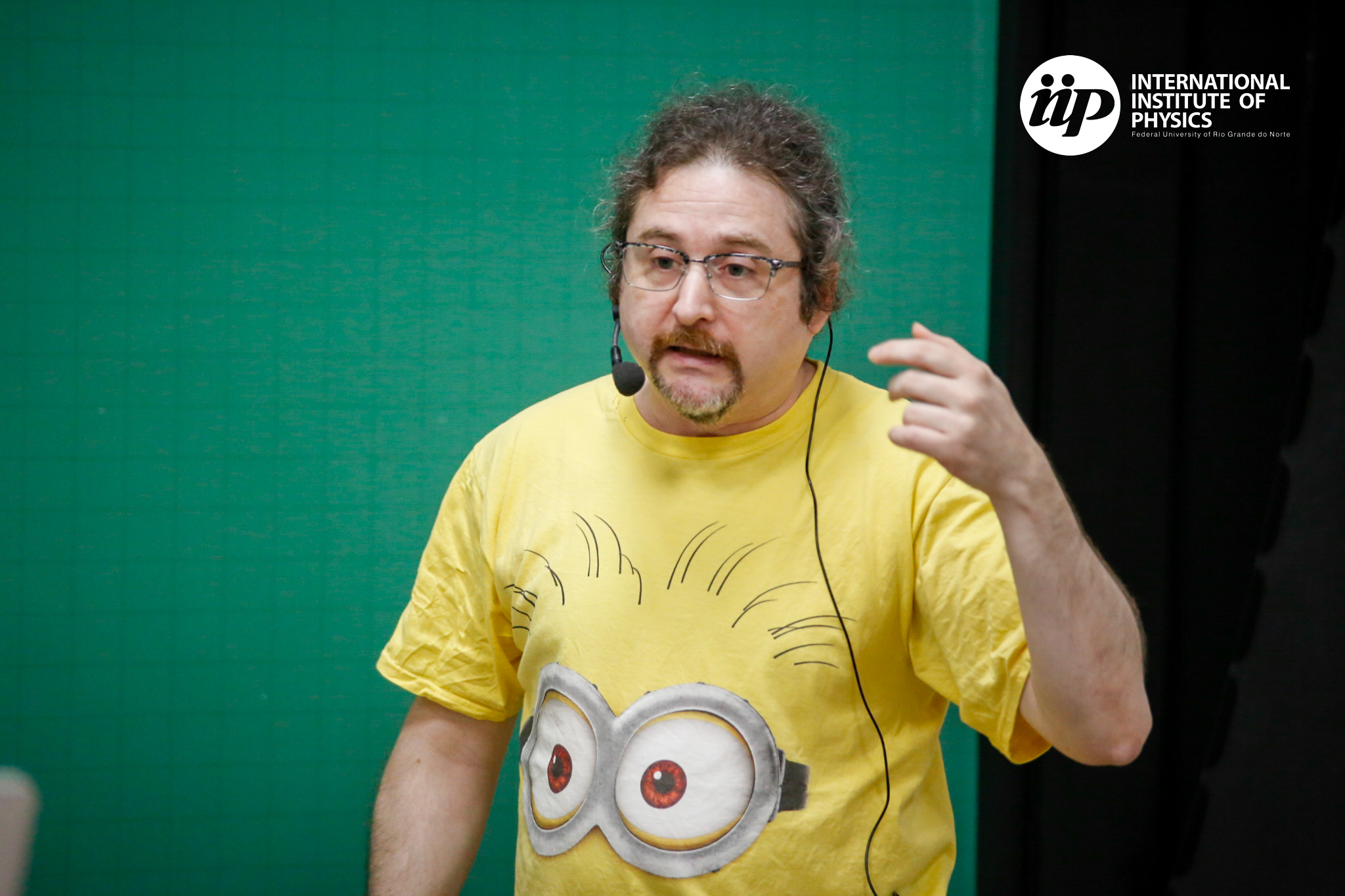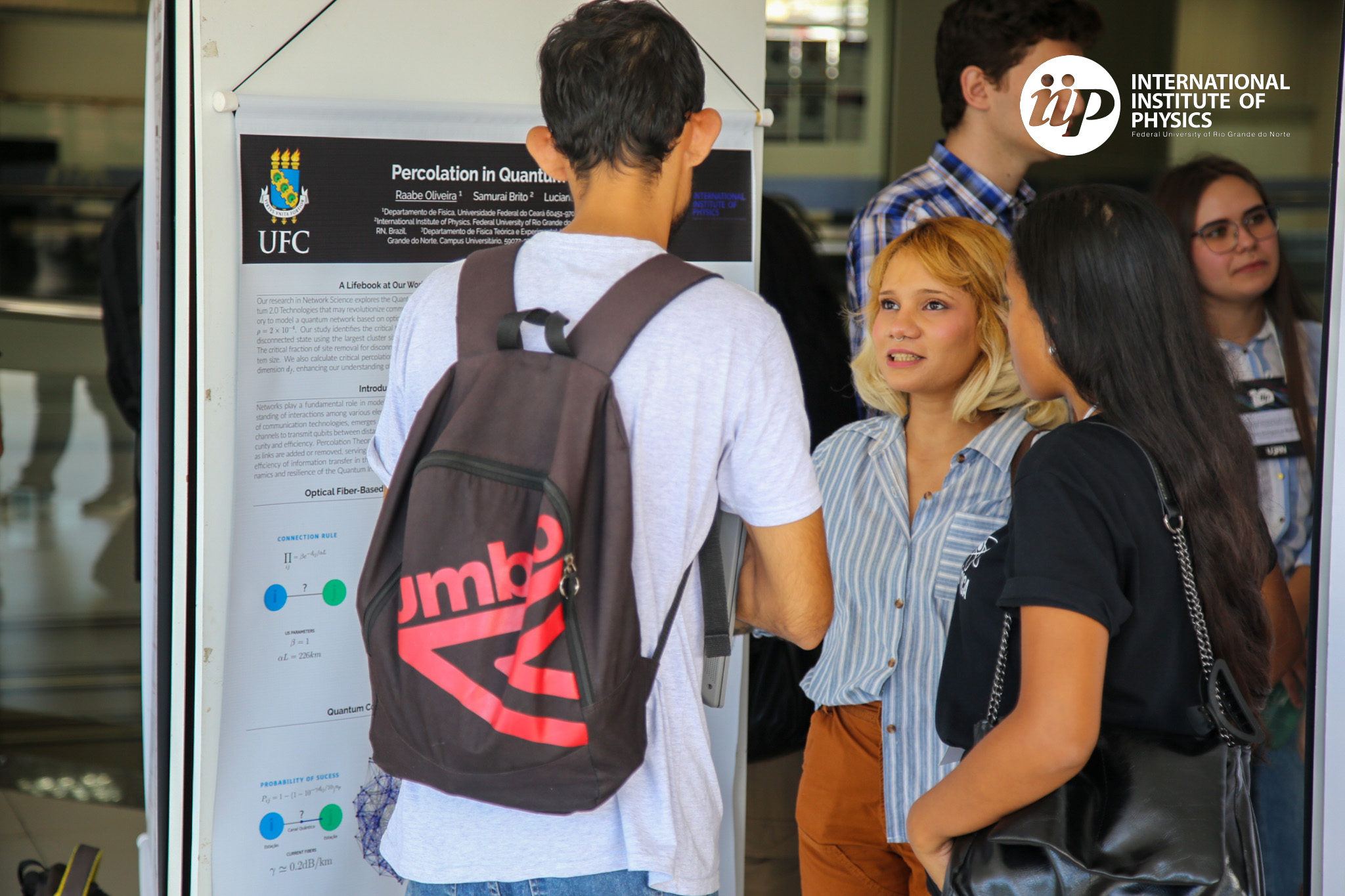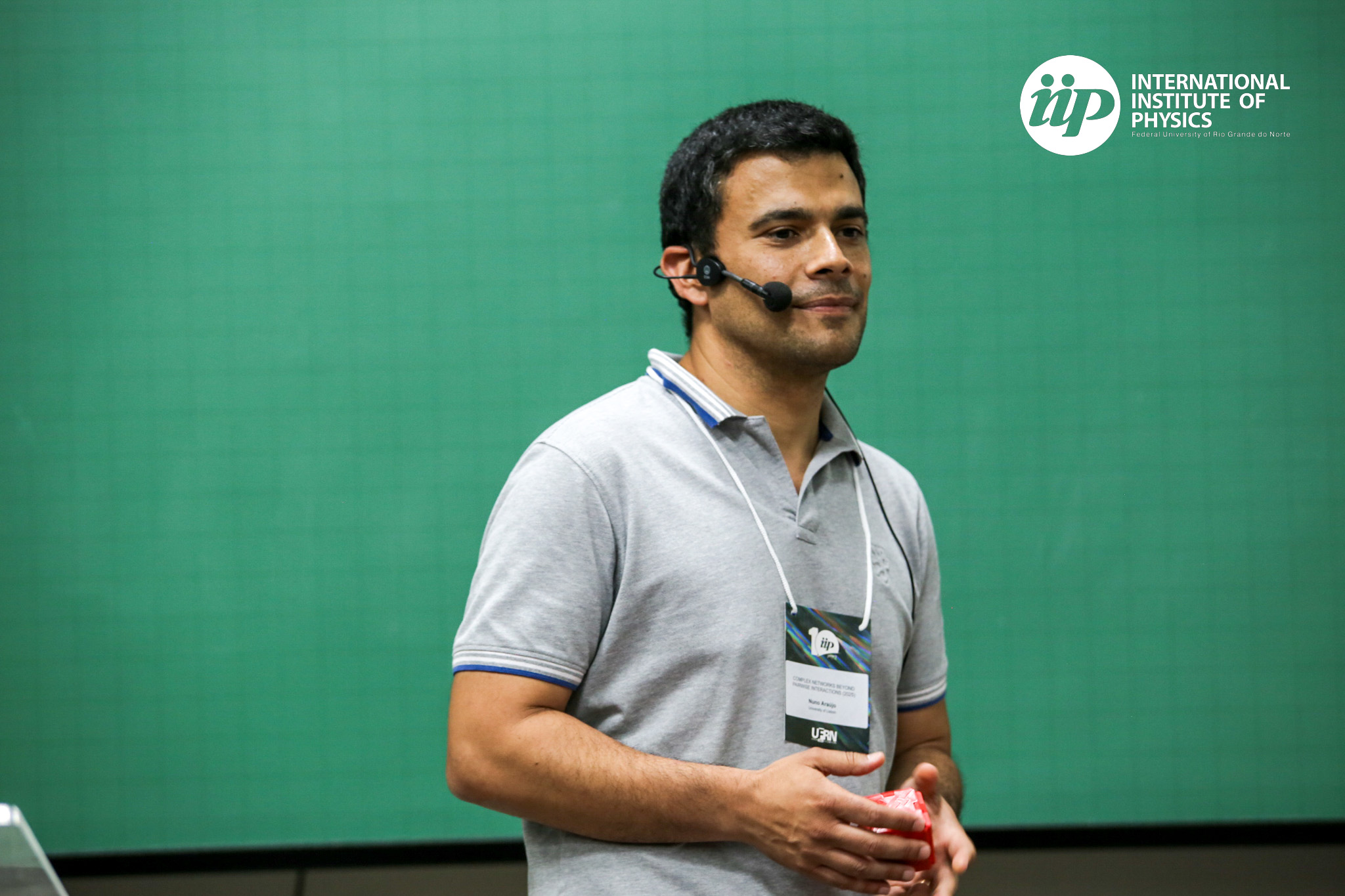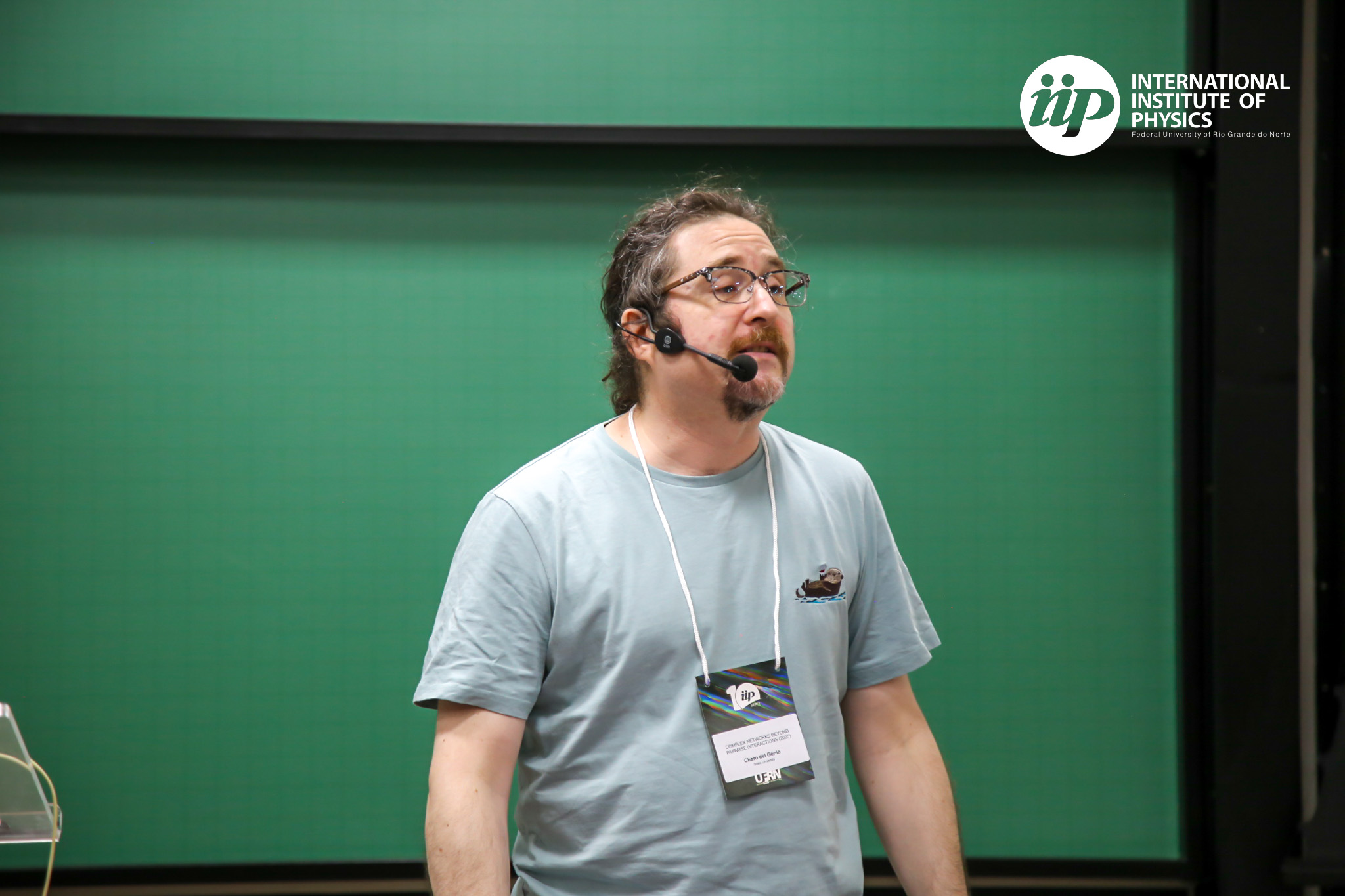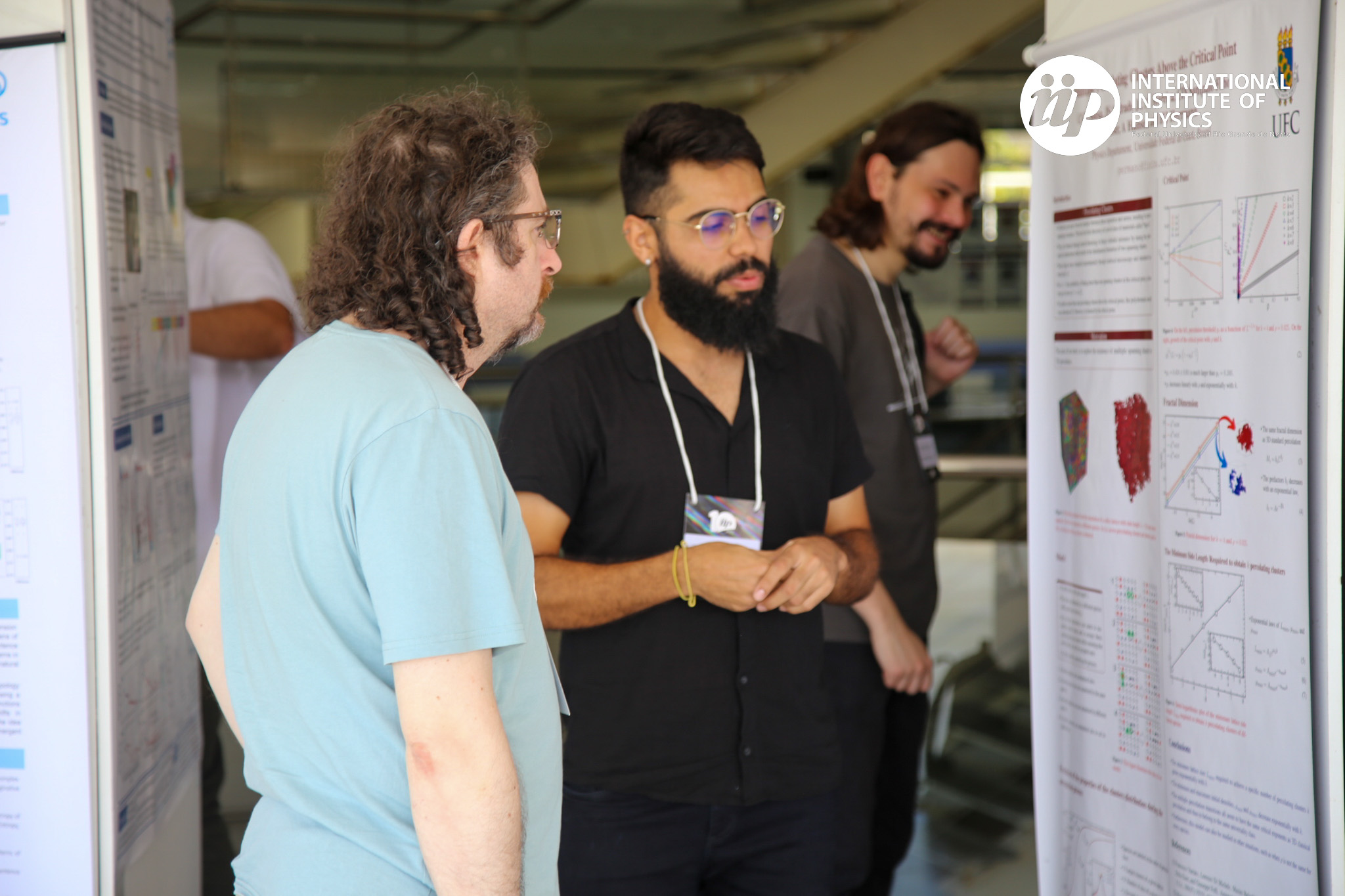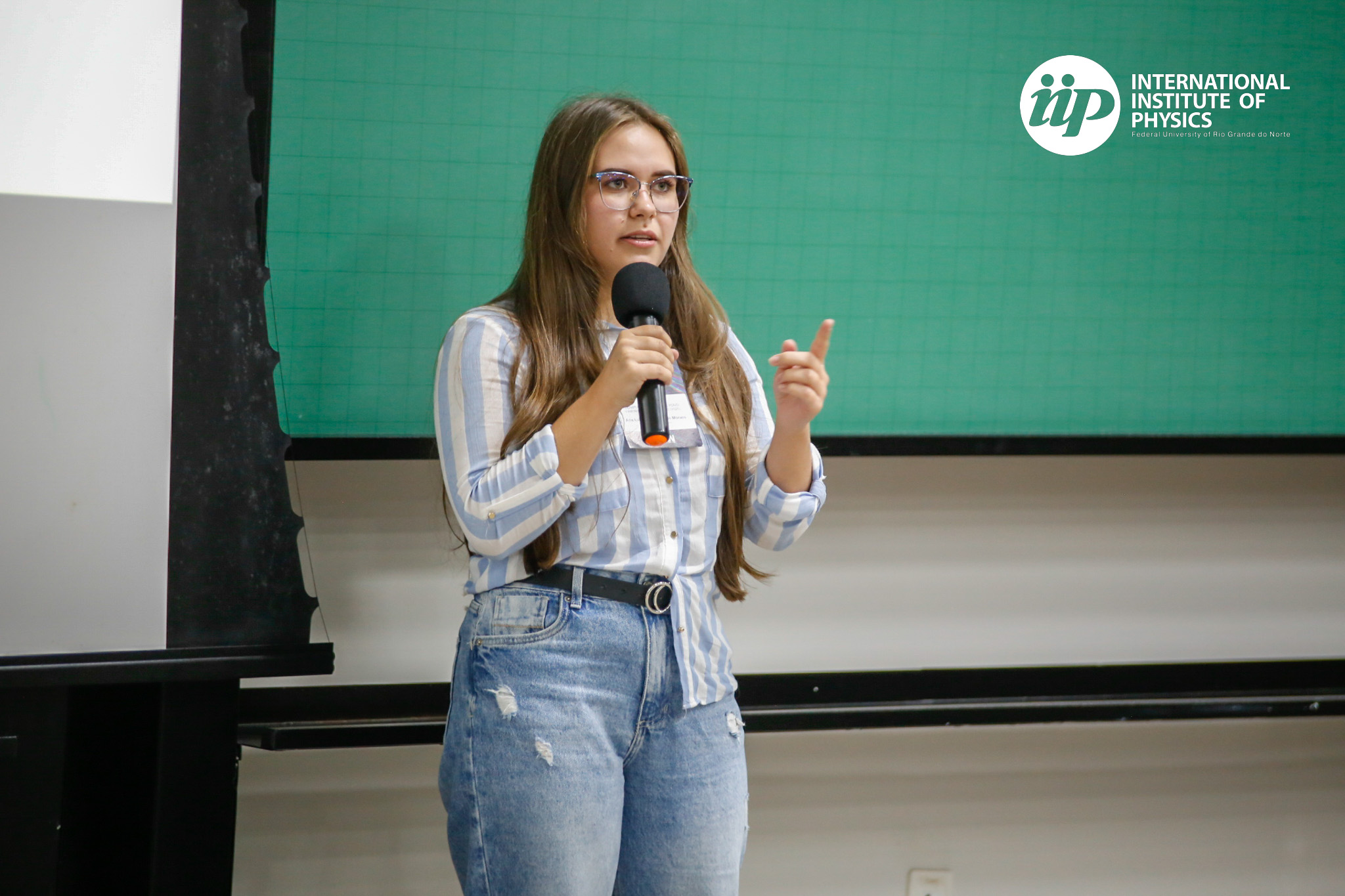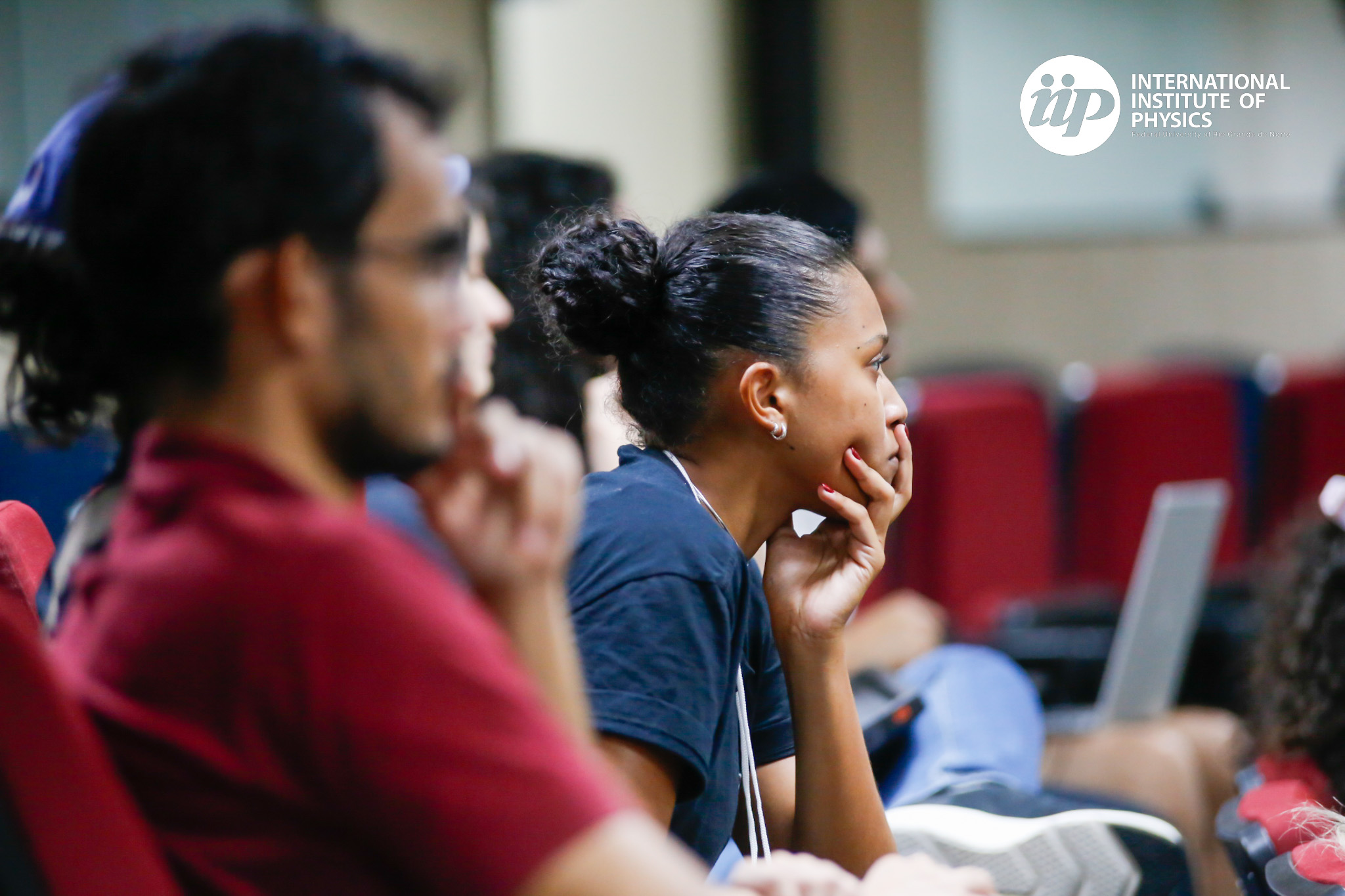Please be aware that the International Institute of Physics, IIP, never contacts the participants to ask for credit card or similar information. Participants are expected to pay for their travel and accommodation by themselves unless they qualify for financial support. If you have any questions, please contact IIP events department at events@iip.ufrn.br
Complex Networks beyond Pairwise Interactions: From Theory to Applications
Network science was born 25 years ago as a multidisciplinary application of graph theory, and it produced major results in many areas. Later, it expanded to encompass systems consisting of separate layers of individual networks, possibly with common nodes, producing new unexpected insights and sparking a second wave of discoveries in complexity science. However, much more recently, the limitations of this paradigm became clear, when researchers noted that using graphs as the underlying structures, one can only model interactions between pairs of elements, whereas collective properties of many real-world systems are due to interactions occurring over larger sets of units.
To address this issue, scientists have begun using the mathematical structure of hypergraphs, in which links can occur between more than two nodes at the same time. The resulting networks can thus naturally represent many-body interactions, allowing one to describe systems with a much higher degree of precision. This shift of paradigm has stimulated a new movement of interdisciplinary research, that uses a synergy of graph theory, dynamical systems theory, control theory and numerous further disciplines in mathematical and statistical physics, which has already led to unexpected results in a broad range of areas.
The event will consist of a school followed by a workshop. The school will introduce students and researchers to the tools needed to study networks beyond pairwise interactions, to model and analyse their structures as well as the dynamics and the processes that they support. The workshop will host an interdisciplinary mix of the world's leading researchers in the field of higher-order networks. Its principal aims will be to catalyse the development of analytical results and numerical methods and to create connections between those results and relevant real-world applications. To this aim, the speakers will include researchers who focus on fundamental issues and methods, as well as scientists with more applicative interests. Thus, the event will bring together top scientists with diverse backgrounds, creating a environment that will promote the fruitful exchange of ideas and foster new collaborations. The invited talks will be complemented by contributed presentations from other researchers, including graduate students and postdoctoral fellows.
Format of the event: Three-day school (25 June - 27 June) followed by a three-day workshop (30 June - 2 July).
Fee: 150 USD for students, 200 USD for senior participants.
Registration:
Registration for this event can be done here
Speakers:
- Stefano Boccaletti (CNR Institute of Complex Systems - Sesto Fiorentino, Italy)
- Pietro de Lellis (University of Naples "Federico II" - Naples, Italy)
- Charo del Genio (Trakia University - Stara Zagora, Bulgaria)
- José Soares de Andrade Júnior (Federal University of Ceará - Fortaleza, Brazil)
- Francisco Aparecido Rodriguez (University of São Paulo - São Paulo, Brazil)
- Gandhimohan Viswanathan (Federal University of Rio Grande do Norte - Natal, Brazil)
- Luciano Rodrigues da Silva, (Federal University of Rio Grande do Norte - Natal, Brazil)
- Silvio da Costa Ferreira Júnior (Federal University of Viçosa - Viçosa, Brazil)
- Luciano da Fontoura Costa (University of São Paulo - São Paulo, Brazil)
- José Fernando Ferreira Mendes (University of Aveiro - Aveiro, Portugal)
- Hernan Makse (City College of New York - New York, NY, USA)
- Hans Herrmann (Federal University of Ceará - Fortaleza, Brazil)
- Tiago Pereira da Silva (University of São Paulo - São Paulo, Brazil)
- Nuno Araújo (University of Lisbon - Lisbon, Portugal)
- Giovanni Petri (Northeastern University London - London, UK)
- Guilherme Ferraz de Arruda (Gleb Wataghin Institute of Physics (IFGW), UNICAMP, Brazil)
